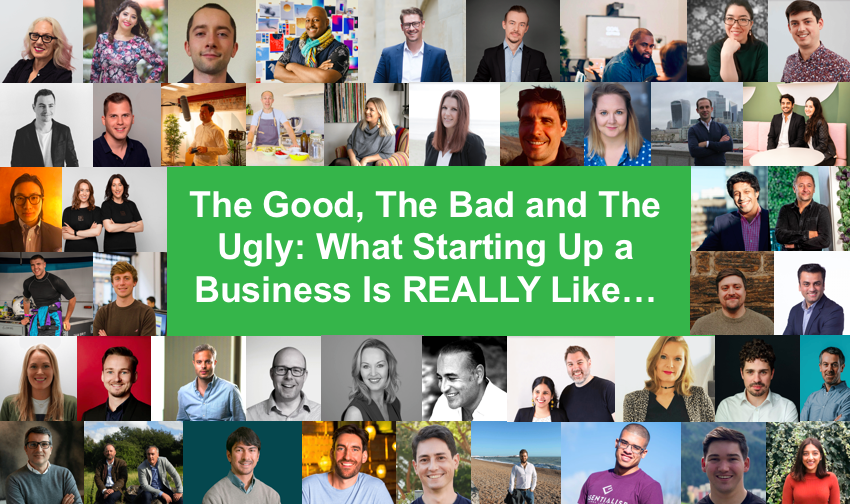We’ve all heard it before, the journey from rags to riches, from humble beginnings to great success, the everyman turned successful entrepreneur. But while the bright-eyed faces beaming from a Forbes 30 Under 30 can seem only to reveal that entrepreneurial glow of passion and drive – what happens when the going gets tough? What is it really like to start up a business?
From sleepless nights to stress-filled days, we wanted to find out what startups truly demand from their founders, and called on entrepreneurs to spill the reality behind being your own boss…
Our Founders:
- Suzanne Noble – Co-Founder of Startup School for Seniors and Nestful
- Viva Andrada O’Flynn – Entrepreneur of Love Viva Cakes and Crafts
- Anton Dybal – Founder of Next-Level Artwork
- Christian Azolan – Owner & Digital Visual Artist at Christian Azolan
- Mark Smith – Founder of Double Up Social
- Alex Tomchenko – Founder & CEO of Glambook
- Andrew Dalhouse – Founder of AA Media Studios
- Emily Mei Carter – Founder of Ecosphere Consulting
- Adam Bastock – Founder of Small99
- Jacob Sever – Co-Founder & CEO at Sumsub
- Tamas Kadar – CEO and Co-Founder of SEON
- Mark Reynolds – Founder of Hable
- Jamie Baird – Founder and “Chief Steeper” of Steeps One Shot
- Jessica Heagren – CEO and Co-Founder of That Works For Me
- Clare Groombridge – Founder of South Coast Social
- Lazar Vukovic – Serial Entrepreneur and Author of ‘Make It Happen! A Little Black Book on How to Make Things Happen
- Daniel Zemmour – Owner of Molecule
- Daniel Jiang – Founder of the Future Member
-
Charlotte & Sophie Wilson – Co-Founders & Directors of YANA
- Stefano Manili – Founder and CEO of Cosaporto
- Andrew Hatcher – Business Adviser and Coach
- Andrew Butt – Co-founder & CEO of Enable
- Thomas Skinner – Founder of Barnaby Cecil
- Noam Nevo – Co-Founder at Osu
- Ifty Nasir – Founder & CEO of Vestd
- Christopher Bo Shields – CCO and Co-Founder Totem
- Tom Bourlet – Founder of CBD Sloth
- Matty Street – Owner of Team Karting, TK-Xtra, Cadet Kart Championship, XTra Treats, X-Kart
- Harry Atkinson – Co-Founder and Chief Data Officer at Sensat
- Lee Chambers – Founder of PhenomGames and Essentailise Workplace Wellbeing
- Oliver Bowles – Director & Co-Founder at Luxury Loft Co.
- Nikki Wheeldon – Co-Founder at Jampot Business Support and Co-founder at Communal Brew
- Mark Boost – CEO and Co-Founder at Civo
- Sonya Barlow – Founder of LMF Network
- Tom Scott – Founder of Little Mesters
- Adnan Zaheer – CEO and Founder of Seers
- Andy Hibbert – Founder of Karshare.com
- Jennifer Johansson – CEO of Placed App
- Andrew Jervis – CEO and Co-founder of ClickMechanic
- James Coombes – CEO and Co-Founder of Vector.ai
- James Cook – Executive Chair of LeadRetriever
- Nicola Hartland – Chief Revenue Officer at CyberCrowd
- Nico Nicholas – Chief Executive Officer of Tree4Travel
- Veena Giridhar Gopal – CEO of SalesBeat
- Jenni Riley – Co-Founder of ITARMI
- Rémy Astié – CEO of Vauban
- Ranjan Singh – CEO and Co-founder of HealthHero
- Tom Simmonds – COO of Gretel
For any questions, comments or features, please contact us directly.

Suzanne Noble, Co-Founder of Startup School for Seniors and Nestful
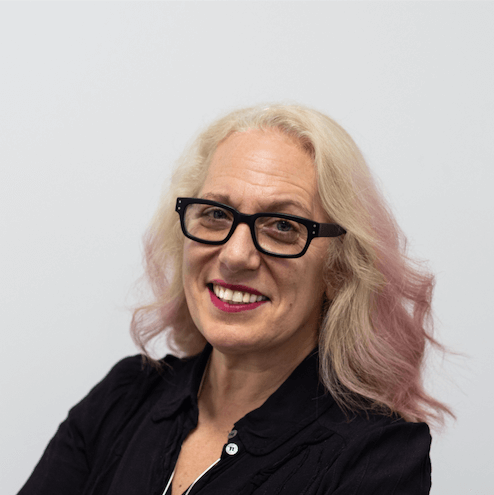
“Starting a new business is a lot less sexy and fun than the media would have us believe. Much of it is spending time on tasks for which any reward is a long time coming.”
“On an average day, I’m speaking to current or prospective customers, populating our social media feeds, appearing on a panel discussion or contributing to an article usually related to older people, working with my co-founder on the latest updates to the website and filling in an application usually related to a grant or some other type of funding, trying to figure out how Facebook ads work.”
“Like most startup founders, I always have one eye on the bank account, working out what software subscription I can cancel to cut down on our overheads.”
Viva Andrada O’Flynn, Entrepreneur of Love Viva Cakes and Crafts

“When people think of starting a business, they think their time is flexible, there is more freedom to do what they want, that if they have a product or service customers are easy to find, that they can earn unlimited profits because they’re their own boss.”
“The truth is it’s tough to be an entrepreneur, starting a business is challenging. Being your own boss is a lot of responsibility. You would be responsible for your clients, employees, suppliers, direction of your business, future growth. If you don’t know proper time management, you may get stuck with day to day tasks and not achieve much. You would need to be multi-skilled, if you want to save money, as outsourcing can get costly too. You would also need to learn how to market your products and services effectively so that prospective customers would know what you offer and how it addresses their needs.”
“I think it’s easier to be an employee, earning a pay check, getting paid per hour. When you’re an entrepreneur, you think of your startup constantly and may not even get paid for it.”
“With being an entrepreneur, you always have to innovate and do things better than others, constantly delight your customers and find ways to work better with your employees and suppliers.”
For any questions, comments or features, please contact us directly.

Anton Dybal, Founder of Next-Level Artwork
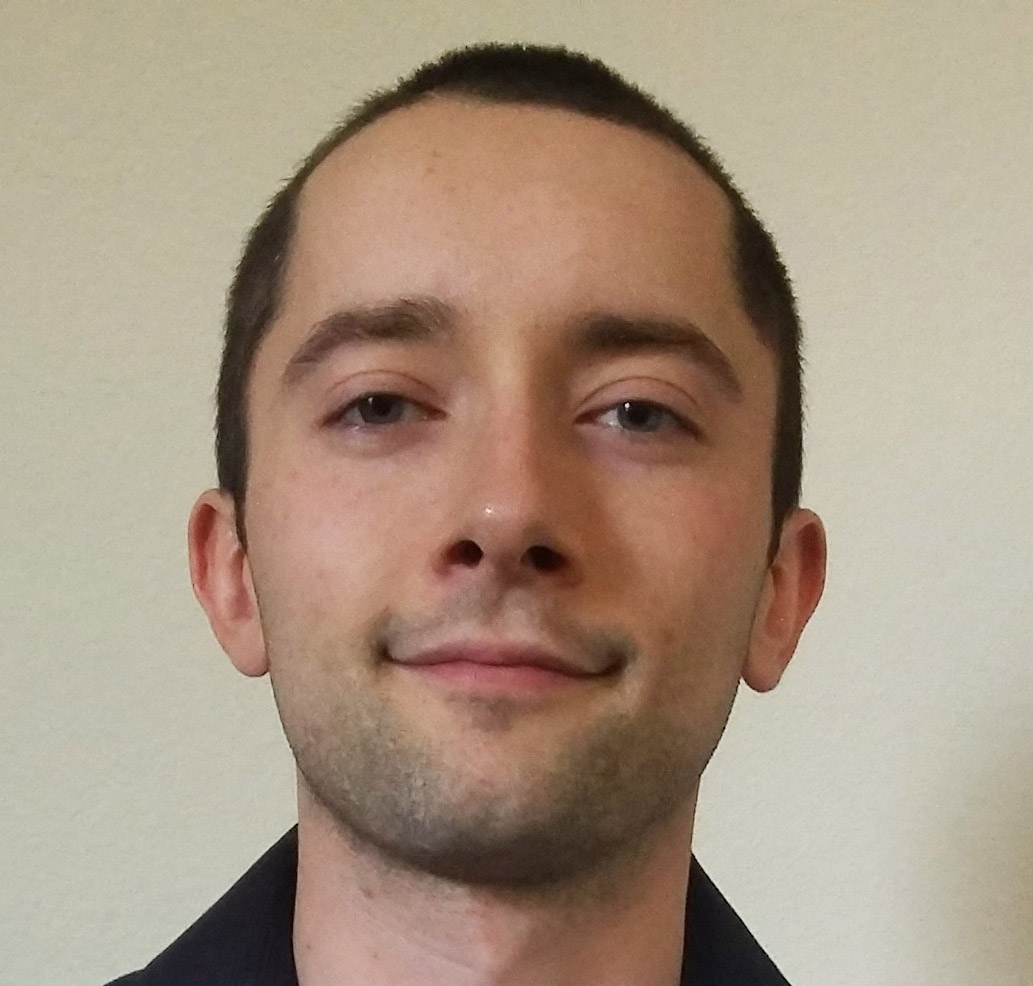
“Starting a business is full of loads and loads of failure and disappointment—especially if you’re new to entrepreneurship and don’t have experience successfully growing and scaling businesses.”
“It’s tons of hard work on things that you think will work & pay off, but end up completely faceplanting and flopping miserably. It’s having dozens of times where you’re like: “This is it! This is the big idea that’s gonna really turn things around and explode the company’s growth!”—and then after you try it, turns out you were wrong.”
“It can be incredibly hectic at times, bouncing from idea to idea and activity to activity, really just experimenting with tons of different ideas and strategies to find out what does and doesn’t work.”
“At the same time it’s also incredibly fulfilling knowing that you’re going after your dreams, knowing that you had the courage to quit your day-job and go for it—to put your money, your reputation, and your ego on the line to try to build a successful company. The failures, the setbacks, the disappointments, that’s just a part of the game. My advice is to go into it knowing that they’re an inevitable part of the game, and to try to view them as learning experiences to help you to decide on the best course of action.”
“Starting a new business can definitely suck at times, but overall it’s incredibly exciting and fulfilling to try to bring an idea to life from scratch like that—and I can tell you from experience, it makes life a hell of a lot more interesting than just showing up and clocking in to work a boring 9-to-5 job that you can’t stand.”
Christian Azolan, Owner & Digital Visual Artist at Christian Azolan

“Having been made redundant due to the pandemic I started my art and illustration business in March 2020. I knew I had the skills to be an artist but I needed to learn the skills of running a business day to day.”
Tax and expenses
“I had to learn how to do taxes and expenses and not being a numbers guy, this was not easy, I had to find an accountant also not as easy as it sounds, from recommendations from friends to making sure they are not too expensive.”
My relationship
“My business has taken over my life, I work 7 days a week and as my partner constantly tells me to take a day off but when you’re building up you want to pack as much into your day/week as possible, we have even had a few disagreements about me working weekend and late into the evenings. I feel I’m in a Ménage à Troi with me, my partner and my business and my business is getting a lot of love and attention compared to my partner.”
My spare time
“I don’t have any spare time, all my time goes into my business and when I do see friends in the evenings or weekends I feel guilty that I’m not spending time on my business etc. I know there is always an everlasting list of things to do, but i do feel that pressure to spend time working.”
The social media pressure
“If you are not on social talking about what you’re doing, how you’re doing it and keeping a visual record then you don’t really exist as a business, I’m on Facebook, Instagram, YouTube, Twitter and so on and I’ve met some amazing people and other creatives but you do feel like you will miss out if you’re not always taking part, I only post 1 thing a day, but before it use to be more. The social media FOMO is real.”
The self help book and the experts
“There is always a need to self improve and learn new things, especially in the art and tech sector, every business owner that i meet wants to share a book, a podcast or an event I should pay to attend to simply be better, at times this can be tough as running a business day to day is exhausting enough without being made to feel you need to do more or that there is a magic wand book that will help you get it all things done.”
PR & Marketing
“As a small business I do my own PR and marketing, as I can’t yet afford someone to do this for me, I approach all press and networking events and do all my own social media and day to day brand pushes and discounts. Being the face and having your name as the business can make me feel really lonely.”
Friends and family rule
“I have a rule that I don’t sell art to family members, this can cause real issues and put you in a difficult position, as an artist a lot of people feel you work for free and that is not the case, if my family want to buy they will have to go on the website like everyone else.”
Sleepless nights
“I spent a lot of time thinking, i think about all the things that can go wrong, all the things that are coming next and all the opportunities I’ve missed or need to apply myself to, this is a sure way to keep me up all night, I’ve had loads of sleepless nights where my brain will just not switch off.”
The website
“The stress-packed days of working with a web designer and developer to do things on my website has been a struggle and at times very tough. Yes it’s always worked out in the end and it’s worked, but when things go wrong on a website, from payment platforms not working to pages not loading, it’s a constant battle to maintain things running smoothly at all times.”
“The constant juggling and wearing different hats is a constant strain, I am HR, PR, Marketing, Tax, Promo, Social, Sales, Operations, Customer Service and The Brand.”
“Running my business just over a year now and I’ve had lots of ups and downs, and it’s been tough and covid has played it’s part in driving me and everyone one crazy, I wouldn’t change it for the world, the freedom of running your own days and reporting and staying accountable to yourself and not some faceless shareholder is so rewarding, this is the best thing I have ever done, tough, but very rewarding.”
For any questions, comments or features, please contact us directly.

Mark Smith, Founder of Double Up Social
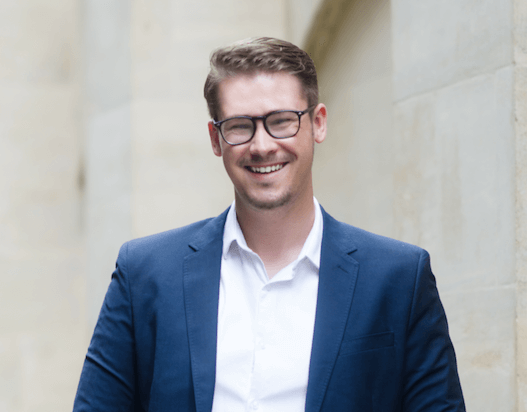
“Like many others, my start-up, digital marketing agency Double Up Social, began as a side hustle – I was freelancing during my studies for both experience and extra income.”
“Over time, I began gaining bigger and bigger contracts and rebranded as Double Up Social, bringing on additional part-time staff to assist with the workload. Whilst I was finding the right staff to assist me, I was in charge of every aspect of the business – from admin to account managing & fulfilment of our clients’ requests.”
“Managing every aspect of the business was time-consuming – there was never a day off (And I’m sure my family and friends can testify to that!). Even while on vacation on the other side of the globe, I was having to set aside some time, up to a few hours a day, to continue work. I was lucky the business was growing as fast as it was, but I was having trouble finding the right team of experts to assist in managing the day-to-day. Working 7 days a week for months on end is not healthy, and, naturally, my mental health took a hit.”
“As a start-up, it’s important to understand the importance of delegating your workload and not wearing all the hats in your business. Many start-ups are perfectionists and hold onto their brand like their baby, but from my experience – you have to trust your staff to allow your business to grow.”
Alex Tomchenko, Founder & CEO of Glambook

“Prior to founding Glambook in 2020, I built a digital marketing agency, which gave me my first taste of entrepreneurship. When I started Glambook, my experience on the agency side came in handy, but now it’s a much more complex environment – the pace is faster, the scope is broader and there are many more things I need to keep on my radar. Also, communication is key these days – networking, conversations with investors, partnerships, fundraising, opportunities that would help the business grow.”
“When your startup is in its growth stage, there’s no such thing as business hours. You have business hours when there’s work to do, and there’s plenty of work to do all the time. The only exceptions – meal breaks and sleep. However, even before going to bed I always check where we are with the user base and make sure there are no issues that need immediate attention. I’m no stranger to waking up in the middle of the night to add things to the to-do list, check if our ads are running and that everything is working properly.”
“I pride myself on remaining calm under pressure. That’s the quality I developed during my digital agency days – and it’s incredibly helpful in a startup environment. But high demands of a startup environment, constant stress, lack of sleep and always moving at a very fast pace can take a toll even on me. Being passionate about what I do really helps to keep up a positive attitude – despite all of the challenges of a growing business and intense schedule, I get very excited when I see new users joining Glambook and having a positive experience with the platform – that means that all of our hard work pays off. There’s a saying “work hard, play hard” – the play hard part is something that I still need to work on.”
For any questions, comments or features, please contact us directly.

Andrew Dalhouse, Founder of AA Media Studios
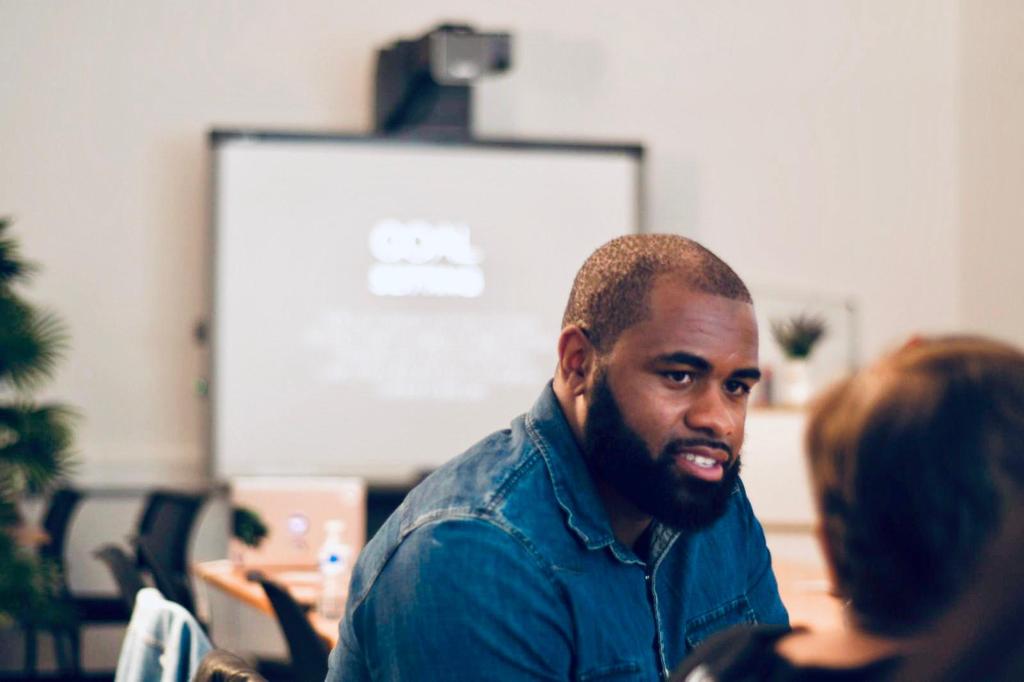
“Starting a company is truly one of the instances in life where no matter how hard I prepared for it, without physically experiencing it you’re completely unaware of the actual reality.”
“For months, possibly years I’d manifested ideas, designed logo’s, business cards, obsessed over figures and got myself in the best possible position to take this step into self-employment or so I thought.”
“Prior to this I’d worked 10 years for an IT company, so I was certain this was going to be the future I’d planned but after all the steps I’d previously spoke on and more, I found myself one day sitting in my office staring at the wall contemplating if I’d made the right decision. From that day forward I had to accept the fact that I wasn’t going to be paid monthly or be able to ask my bosses for overtime work if I wanted to earn extra money, take days off through sickness and that now there weren’t going to be 100’s of other workers who could pick up the slack when I wasn’t able to reach full potential.”
“It was daunting to say the least, but I did what I do best. I isolated myself from all distractions and used my networks to my best abilities.”
“The 1st two years were hard because I was building new relationships and working hard to build my reputation which included using previous joint projects to garner peoples trust but I was fortunate that social media was growing and platforms such as Instagram/Twitter/Facebook allowed me to spread my work to people who already knew me and benefit from the personal relationships.”
“I decided to purchase a shared office with another friend who had started her own business and look for other people within similar situations to split costs and help us remain motivated throughout. The work environment was positive as we were able to share skillsets and bounce ideas. As we began to grow larger companies we also benefitted from the shared communities and friendships whenever each person would have meetings and visits.”
“In 2021 I’m now really enjoying my business journey as it’s allowed me to have the freedom to explore other avenues of business while contracting up to 10 freelancers at a time. By the end of 2021 I hope to have 20 students within our youth project in order to gain valuable work experience.”
Emily Mei Carter, Founder of Ecosphere Consulting
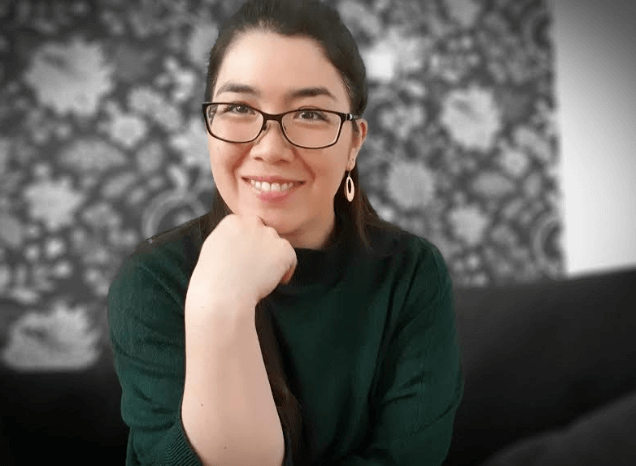
“I have recently started a business after having my first child – I started working on it part time since she was about 9 months old, whilst my husband takes 2 days a week of paternity leave with her.”
“The reality is that though working part time he still gets a full time amount of emails and tasks, and part time isn’t really enough to try and launch a business either, so we mostly work all weekend and evenings till about 11pm as well, before getting up early to entertain an increasingly active toddler.”
“The result is a serious time balancing act sometimes, trying to fit in cooking family meals, doing general housework, my working hours, his working hours, entertaining our daughter, trying to stay healthy (usually failing), with very little relaxation, down time or family time, and basically zero time together as a couple since one or both of us is working basically all hours we are awake.”
“Sometimes it feels fabulous, to be progressing towards my goals, and other times I would like to rent a hotel and go sleep for 48 hours straight! The laundry gets done only when the situation is desperate and the grass is getting a little long…but we’re making it work and it’s so much more exciting to be finally doing my own thing, I wouldn’t give it up!”
For any questions, comments or features, please contact us directly.

Adam Bastock, Founder of Small99
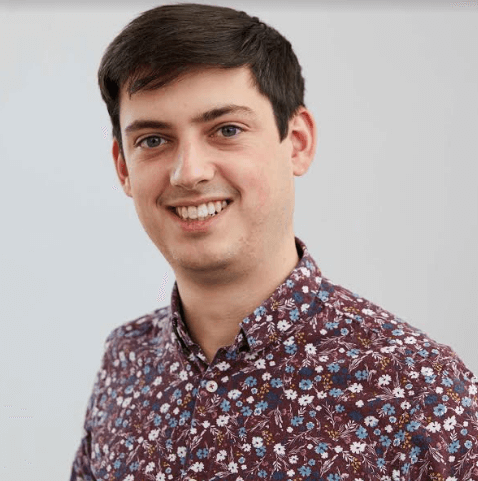
“Starting a business is exhilarating and overwhelming in equal measure. It gives you endless energy because it’s a passion project that you’re working on, but eventually your body will disagree and you’ll burnout. Finding the balance between the two positions is an endless task, regardless of financial stresses.”
“In starting my business I’ve found incredible passion and joy for what I want to do, but constant anxiety that I’m doing the right thing and frustration I’m not doing enough. Expectations on myself are impractically high, and there’s no real support to turn to like you would with a team.”
“The Good:
- Do what you enjoy – The biggest freedom from starting out is that you can choose to do what you enjoy doing, which tends to also lead to success. No boss to give you inane tasks!
- Reach new opportunities – If you have knowledge of the market you’re going into, it’s rewarding being able to fix the problems that other companies have and make customers happier as a result. Identifying opportunities that have gone unfulfilled for years is hugely rewarding – emotionally and financially
- Meet Great People – You can choose to network and start conversations with other people doing great thanks, that as a “Founder” may otherwise be off limits to someone employed.”
“The Bad & The Ugly:
- Money – In the early days of starting out, you have no framework for earning money and this is a stressful situation. The energy is going into creating them, but getting people to know you and trust you before sale, is a battle
- Focus – Due to money not coming in, it’s difficult to know if you’re focusing on the right thing or not. There’s endless possibilities of stuff you could be doing with no-one telling you what to do, so you need to have a core focus of why you started the company
- Prioritisation – Again, lack of money means doing more things takes time, and you need to know your time is being spent in the right places. Once money comes in things get much easier as you can increase capacity.”
“Overall I’d summarise my experience as a founder as:
- Constant anxiety over if I’m doing the right thing and focusing energy in the right places
- Concerns over money coming in and that I’m creating products people actually want
- Fear of burnout because once it hits, you’re too late to manage it
- Excitement and joy, with the money not being a big concern because you feel like you’re actually living life and making a difference, rather than just going through the motions”
Jacob Sever, Co-Founder & CEO at Sumsub
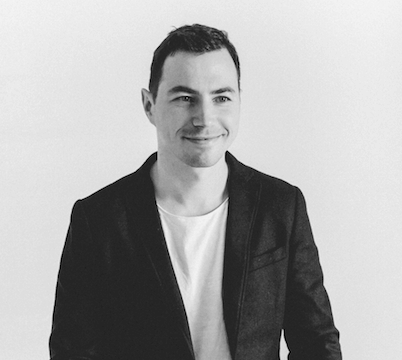
“A startup demands that its founder postpone everything else in their life for the next couple of years. Every founder believes in their idea, but to prove this to the market and confirm viability of the business model, they have to work 24/7. Of course, this means stress, doubts, and constant struggle with circumstances, technological problems and lack of time. It also means difficult discussions with partners, because everyone has their own vision of how the product should be developed and what markets to hit first. And if you fly solo, you are saddled with greater responsibility for every decision that you make.”
“But, on the other hand, a startup is a constant process of growing your skills. It’s an opportunity to try something new, it’s the freedom to make your own decisions and bring your product to life. It is your chance to become big. You are constantly learning – to understand people, among other things. Because a person who joins you at the start of the project can have a serious impact on the final product and the startup’s success in general.”
For any questions, comments or features, please contact us directly.

Tamas Kadar, CEO and Co-Founder of SEON
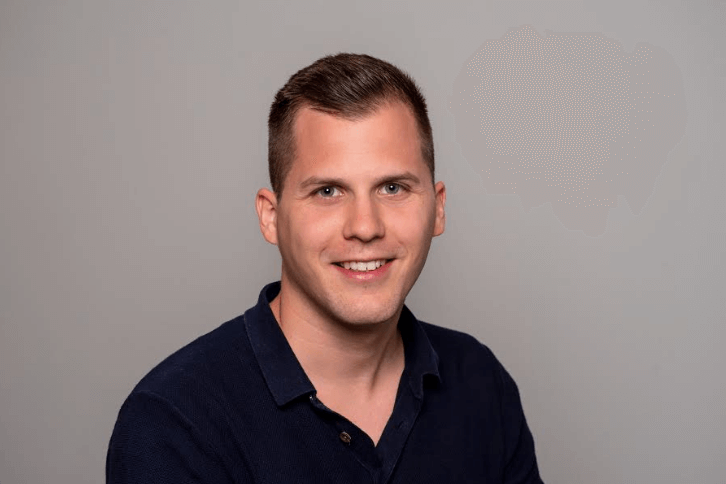
“A lot of companies are born out of a bolt of lightning, apple falling from the tree moment of inspiration. In 2017, SEON’s COO, Bence Jendruszak, and I created the technology behind SEON because we didn’t have a choice.”
“We met at university and bonded over a shared interest in cryptocurrency. Together, we came up with a plan: Central and Eastern Europe’s first dedicated crypto marketplace. We hit the keyboards, coded a fully-functional site and set it to go live. Almost immediately we were hit by fraud attempts – mostly multi-accounting. We began to look at what kind of anti-fraud solutions were commercially available and were less than impressed. We were used to a fast-moving, always-innovating way of working and from what we could tell the anti-fraud solutions on the market were based on old ways of thinking. So, we started building our own.”
“When word got around that we had our own homebrew anti-fraud software that was better than anything else on the market other companies asked if they could use it, and what started as a side project became our main concern.”
“Now a significant challenge for us has always been that we started the company outside of the tech hubs like London, Munich and San Francisco, so it has potentially been more difficult to secure investment than it would have been otherwise. We have found that some investors and potential clients are sceptical of companies from the central European region – we’re seen as playing catch-up with the rest of the continent.”
“Still, it is far cheaper to start a tech business in Budapest than London, and the region has some incredible talent in terms of mathematics, computer science and AI. It was a great place to incubate our business, and has meant that we had to establish our name by the strength of our product rather than the publicity that comes from being the next big Unicorn business.”
“Today, we were recently the recipient of the largest investment round in our country’s history thanks to the team at Creandum, one of the early investors in companies like Spotify, Klarna and Bolt. We’re not the only tech start-up in the region – there’s UIPath, Brainly and Vinted, to name just a few – but it’s a great feeling to be flying the flag for our region, our country and our city.”
“As a Co-Founder of a business the fulfilment I feel every day makes everything worthwhile. But to get to this stage has taken a lot of hard work and sacrifice. So, I would recommend this to someone that is willing to go the extra mile to make their dream and passion for improving the world work. If you do that then the rewards are endless.”
Mark Reynolds, Founder of Hable
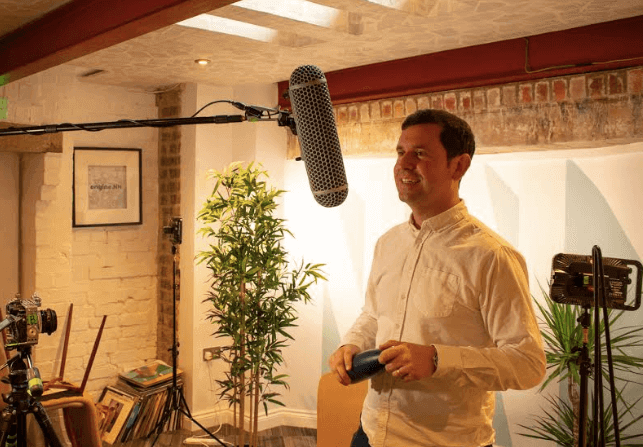
“Whilst I was successful at school, good playing the game, and got good grades, school didn’t really give me the skills I needed to start a business.”
“Growing up, I actually had no idea what I wanted to do for work. So after Uni, when my career as a superstar DJ didn’t pan out, I fell into a job in IT Sales. That led to a successful career working for other people in 3 companies, each for around 5 years. The last of those was Microsoft, which was an incredible place to work.”
“During those 15 years of my career where I was working for other people, I always knew that I wanted to run my own business – I just didn’t know how.”
“I finally got brave in 2014 and decided to quit Microsoft to start Hable; just before pressing the button I wrote this blog, which tells you how I felt at the time.”
“I decided to start a Services business, which was cheap to start and relied initially on one thing: me being able to sell my own time to customers. That is the beauty of a Services company – you don’t need investment in building product or buying stock – you just have to believe that your time and skills are valuable.”
“And, you need some customers who you think will hire you.”
“I felt confident about both, but also decided that if I tried and failed – I could easily go back and work for Microsoft, or some other IT company. So yes, it was a big risk, but I convinced myself (and my wife!) that the worst case was a couple of tough years and me having to “eat humble pie” and start again at a lower grade job if it didn’t work. No big deal.”
“Starting a business for the first time is a scary process, because everything you have to do, you’re doing for the first time. That applies to small things like setting up business bank accounts, and big things like picking a name for your company.”
“I was working on my own a lot, so it was also quite lonely at times. At the start you have to talk like you’re big, even though most things are being done by you personally – you have to train yourself to say ‘we’ not ‘I.’”
“If you’re uncomfortable with a bit of ‘fake it til you make it,’ then setting up on your own is probably not for you.”
“My mantra became the company motto: Dream. Deploy. You’ve got to dream big, but you’ve also got to be prepared to get sh*t done. I’ve now worked for Hable longer than I’ve worked anywhere and I enjoy it (almost) every day.”
“Starting a business is not easy, but it’s also probably not as hard as you think…”
For any questions, comments or features, please contact us directly.

Jamie Baird, Founder and “Chief Steeper” of Steeps One Shot
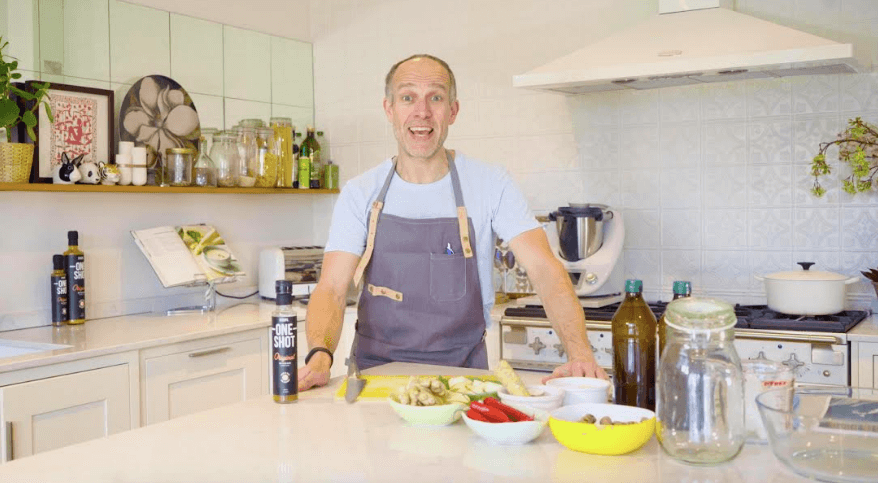
“It all really started accidentally. I was researching gut health and I stumbled on this recipe for what was then called “Fire Cider” and I was hooked on it – not as a business venture but just for me to use. I was already running three businesses and I have three young kids so I had absolutely no intention of starting a drinks business.”
“Making small amounts was tedious so I started to make bigger batches and giving the extra away to my fitness training clients. The more feedback I was getting from them and the more research I was doing, meant the penny finally dropped and I saw the potential. I could tell some friends thought I was mad but they couldn’t see what I could see, mainly because they didn’t really like it or get it.”
“Steeps One Shot had always been a side hustle but with what’s happened in the past year it’s now my main event, I am focused and on it. That said, it was certainly interesting launching during a pandemic, whilst homeschooling three kids!”
“Developing the brand and the look was uber important to me and I know where my strengths lie, so I got help. I knew what I didn’t want but I needed guidance to hone in my vision.”
“The highs definitely lie in the great feedback you get from happy customers, not just on the product, but the service I offer, the hand written notes, the response time to email and yes it’s me when they call.”
“The biggest low for me was ruining a batch of 400 litres about a year ago. It was totally my fault as I was trying to be a bit clever but I took ownership of the mistake, did what I could to solve the problem, discarded the batch and and moved on. I consequently ran out of stock but I was honest with my customers and I started taking pre-orders for the next batches, which were now delayed by about 12 weeks.”
“I consider myself to be a good listener, I take in, divulge the information and then act. Feedback is essential but you have to be able to sort out what is right for the brand and what isn’t. What is it that makes a good customer experience, I am all for exceeding expectations if and when possible. The end consumer is my biggest critic and my ambassadors. They are the ones that will grow my business. The more they talk about it and how it has helped them, the better, it’s free advertising. Keep them on side!!”
“I wouldn’t say I am risk averse, but I keep a tight control on the costs and have kept the business within what I could afford and grown it at a steady pace. If it doesn’t work out then I haven’t broken the bank.”
“The future is looking awesome, I have new products and so many great new sales channels. I absolutely love what I do.”
Jessica Heagren, CEO and Co-Founder of That Works For Me
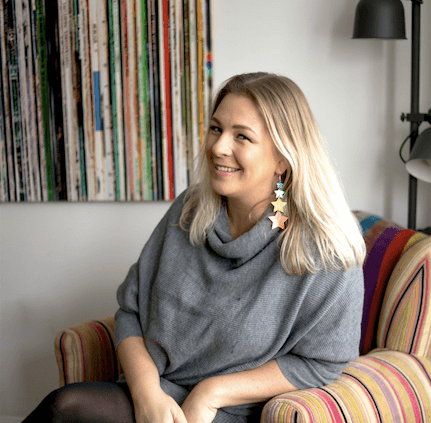
“Someone once told me that starting your own business was like being on a permanent rollercoaster. I couldn’t have put it better myself!”
“I had fallen out of my city career after I had children because I just couldn’t fit their 9-5 requirements. It was a real blow, particularly as I had spent so many years working my way up. After I had my second child, I quickly realised how many other women were in the same boat.”
“When a friend of mine called to say her hugely successful business was at risk because her cashflow had been miscalculated, I asked her why she didn’t have a CFO. She said, “because I’m too small. I can’t afford someone like that”. I told her to hire a mum.”
“That was my lightbulb moment. I immediately saw the opportunity to bring together this untapped pool of talent with businesses in need of resource but not on a full-time basis. We created a digital platform to bring these communities together.”
“Our first issue was our tech solution. We weren’t techy ourselves, so we had to rely on ad hoc advice from people who knew about the detail. We eventually appointed an overseas development team who caused us more stress and upset than anything else since! We invested twice our original spend in getting our platform ‘launch-ready’. You live and learn!”
“The launch was exciting and daunting in equal measure. But we did it and we had a fantastic reaction.”
“People generally respond to your bravery with kindness and support, that is reassuring. Negative feedback? Not so much! You need to grow a thick skin quickly but also be able to sort the BS from the genuine feedback.”
“Building momentum and generating revenue is more of a challenge than you imagine. I cannot tell enough people how important it is to have a good sales and marketing strategy.”
“You can be permanently outside your comfort zone in the early days. If you can’t be comfortable with this then you’re headed into the wrong profession!”
“Starting my own business means I get to work when suits me and my family. Sometimes this means working till midnight, but it also means we can be there for school pickups and swimming lessons. It has been an experience like no other. The lows are soul destroying, BUT the highs are the best thing ever!”
For any questions, comments or features, please contact us directly.

Clare Groombridge, Founder of South Coast Social
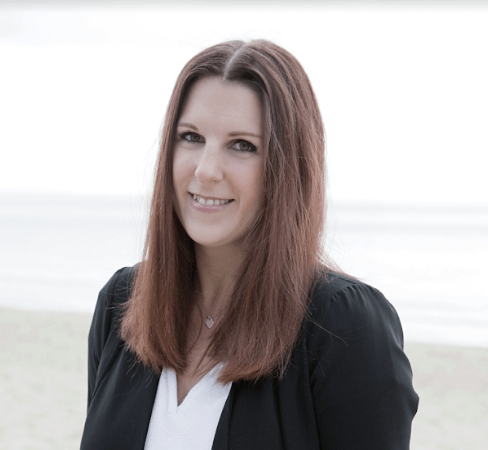
“We were a very lean start up, and as I was also a new mother, I was probably slightly sleep deprived and crazy! I built our first website, worked from my dining room table and hustled hard for the first few years, ensuring what we could offer brands was a clear way to improve and grow their social media, devising our packages ready to bring to market. After handing in my notice after my maternity leave, my old employer became our first client, and the business began to grow steadily from there.”
“I learnt early on that finding your USP as a business is crucial – what sets you apart? South Coast Social is and always has been a purely social media agency – it’s all we do so it’s where we place all our focus and expertise. We’re passionate and incredibly knowledgeable about all aspects of social media. Having a service or product that’s quite unique can be a challenge and we’re often up against larger, ‘full service’ agencies for pitches – my job is to demonstrate how working with us is going to add value and crucially, bring in revenue.”
“I had to learn everything as I went – there’s so much people don’t tell you about running a business that you have to learn as you go! It’s not just enough to have a great product or service – you have to be able to run the company efficiently and be positioned to scale and grow, as well as having the resilience to deal with the ups and downs of being a sole Director.”
“Knowing your market is also vital – I spent a lot of time researching (and still do!).”
“I think employing for the first time was certainly hard – you want to attract people that have the same belief in the company ethos, culture and what we’re trying to achieve. With it also comes a huge sense of responsibility – you’re responsible for people’s livelihoods. The recent pandemic has been a clear example of that, and seeing so many clients and partners struggle made me even more determined to build on what we’ve created.”
“I had to furlough two members of my team when lockdown hit and take immediate action to cut all the outgoings we could. Luckily, due to this and despite the setbacks of 2020 with the COVID restrictions on many of the sectors we work with, the future is now looking brighter again and we’re looking forward to the future.”
Lazar Vukovic, Serial Entrepreneur and Author of ‘Make It Happen! A Little Black Book on How to Make Things Happen
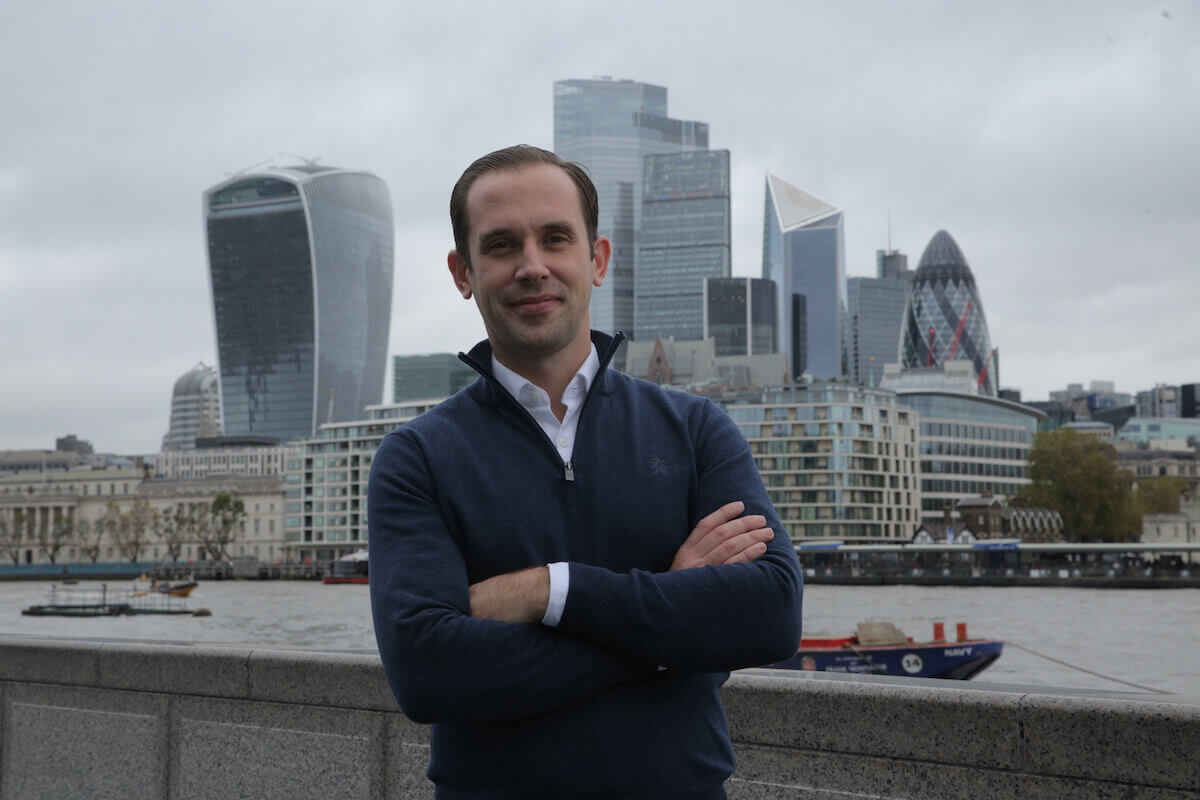
“My first tangible business start-up was at 21, I say tangible as I’ve been in business as far as I can remember as a child selling sweets in the playground was one of my first ventures.”
“It was 2007, Montenegro had just become independent and my nose was telling me that property prices will go through the roof! I set up a property sales agency with no prior experience or guidance, which meant I was completely ‘wet behind the ears.’ Quickly I had sales offices in the UK, Russia, Serbia and Montenegro. The backbone of the business was my own development of a small block of apartments, this is where not only I’d sell my own stock and earn margin but having a portfolio of properties to offer meant I could generate a business which was in the same field.”
“One of the big wins in the business was a block sale to a client, the single unit sales were great, but the sale of multiple units was so satisfying. We managed to achieve a lot of visibility by our targeted advertising with the Financial Times and other global publications, these were only some of the jigsaw parts allowing to close sales from £500k to £2m.”
“But apart from performance I grew a team of over 20 and the sense of having a ‘family’ built from an idea was amazing. I built a small community with similar interests and we all shared the same motivation and people made friends for life.”
“However, the rough comes with the smooth, the real low was finding out that one particular employee was concealing sales from the company and pocketing large sums of cash. It also uncovered that there were more dishonest employees, looking back, as a 21 year old I took it personally and it did hurt as I was growing the company with a ‘family ethos’ and the only reason for an employee to do what they did in this instance was ‘greed’.”
“Remember you don’t need to be an expert in order to be successful, but you need to be good at what you do, that comes with the determination that you carry, you’ll need it to keep you going!”
For any questions, comments or features, please contact us directly.

Daniel Zemmour, Owner of Molecule
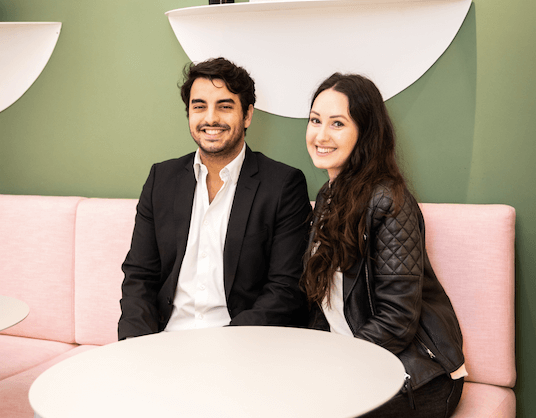
“Molecule is a CBD and Wellness specialist based in Notting Hill which has been running since the start of 2020. Opening a business on the cusp of a pandemic meant we had to stay very flexible and maintain a resilient approach to accommodate for the uncertainty of lockdown.”
“Adapting to a new business environment in a short period of time was challenging, especially after investing so much time and effort in our physical space. We had to move incredibly quickly to be fully up and running online as well as adjusting our marketing strategy. Some parts of that strategy worked really well whilst others didn’t – moving forward and not focusing on past regrets can be hard at times.”
“As a lean start-up team, you end up wearing many hats, especially as a founder in the early stages. When you’re on your own, planning and executing without having someone to help or hold you accountable presents a different set of challenges. Undertaking many different functions such as sales, marketing, finances and paperwork whilst also building a strong team and managing budgets without compromising on growth can be quite testing; you have to operate with speed but can’t forget to maintain a qualitative approach. The recruiting process is a challenge in itself but the burden eases when you’ve found people you can trust who are in it for the long haul.”
“We spent a fair bit of time sourcing the right location and after putting down an offer for our boutique and wellness hub on Westbourne Grove in West London, we thought that we’d be up and running within a month and a half. However, the building works ended up being a much more extensive redevelopment project than initially expected. We discovered a fair amount of structural damage that had to be fixed and 6 weeks turned into 6 months (all the while, we’re paying rent for a space we’re unable to utilise). It’s very frustrating when you’re in a situation that’s completely out of your control.”
“However, it’s all been worth it in the end! We’ve built a wonderful community in London and beyond through our online offering. Helping people manage their stress and anxiety, much of which was heightened by the pandemic, is very rewarding. We also have clients who need help with physical injuries and pain relief. It’s great that we’re able to contribute to people’s wellbeing.”
Daniel Jiang, Founder of the Future Member

“When you hear the word business, what do you see? A global conglomerate? The local family-run shop? A startup? And if it is a startup that springs to mind, what kind of startup? There are varying definitions of what constitutes a startup; if we take the words of Paul Graham, the founder of Y Combinator, a legendary startup accelerator behind businesses like Airbnb, Reddit, Stripe, Zapier and countless others, a ‘startup is a company designed to grow fast’.”
“If only it were as easy as reading Paul Graham’s essays and watching motivation videos to get on your way to achieving what he defines as a business intentionally designed to grow very rapidly and become a big business, and by ‘big’ think ‘software eats the world’ big.”
“The reality is that there are many ways to win in the game of business and, while some startups will grow very fast, others won’t. In my interviews with founders on the General Principles podcast, I learned about the alternative routes to entrepreneurship and how tricky it is to build a successful and sustainable startup whilst maintaining a good life outside of it. One of the most memorable lessons was from Yashar Nejati on the difficulty of managing team relationships.”
“In my experience, one of the biggest challenges when committing to a path of entrepreneurship and building a startup full time without any existing funding, is how much work is involved. You are the CEO making decisions, the CTO building the product, the COO managing your time, and the janitor making sure everything in your workspace is conducive to being in a productive mode of work.”
“To help, one can turn to supportive and entrepreneur networks like Founders of the Future, whose goal is to build the next generation of diverse and purpose driven tech founders by through programmes, events and tools for future founders aged 14 to 30 in their journey to becoming tech entrepreneurs. These networks can help in providing both support in the form of someone to talk to and a chance to meet others on the same path.”
“For me, two of the biggest challenges when building a business are finding the right partner and finding the best routes to generating revenue. Some people can build a business alone, but I think that’s definitely the more difficult route to take because of the roles you have to take on in isolation.”
“Finding a co-founder helps reduce the mental load and you can share the required skillsets, too. But it is not always straightforward. I’ve tried programmes, gone to networking events, and had mixed results, including really bad co-founder breakups, from personality clashes, to differences in working style and values. I’ve made some products before like Humans on Clubhouse. Fun ideas, which gained some traction in terms of users, but bombed in terms of revenue.”
“If, like me, you don’t live in Silicon Valley, there’s the additional challenges of trying to secure funding and finding the right physical place to meet other entrepreneurs and it’s likely you will have to go through many iterations before finding the right product/market fit.”
“To accelerate the challenges of finding a co-founder, discovering product market fit, securing growth, you could also consider attending a hacker house. Whilst this has largely been an American phenomenon, Maker’s House – which is happening this year – is the first hacker house in Europe. It is also more than just a hacker house, being designed specifically to address the listed challenges one faces in their route of entrepreneurship. Maker’s House will bring together ambitious founders and help accelerate their progress on building a startup. As someone has experienced all the challenges and hiccups of doing this, I hope that Maker’s House will make life easier for all the entrepreneurs following in my footsteps.”
For any questions, comments or features, please contact us directly.

Charlotte & Sophie Wilson, Co-Founders & Directors of YANA
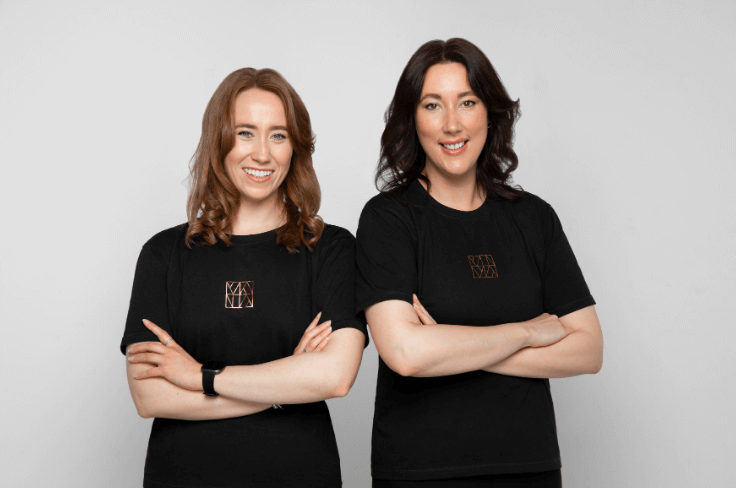
“The majority of people don’t just wake up one day and say, ‘I’m going to start a business today’, as much as it appears to be that way when their business is first launched. What is often unseen is the hours, money, heart and soul put into any start up business.”
“We’re Charlotte and Sophie Wilson, Sisters, Co-founders and Directors of YANA™ Active, an independent, luxury women’s activewear brand focusing on designing and manufacturing unique activewear pieces in the UK. We aim to empower our tribe of Everyday Warriors and enhance the concept of multi-functional and fashionable activewear. High quality is key with subtle details defining our signature products.”
“Prior to launching, we spent every minute of our spare time working on our branding, designing our products and sourcing a manufacturer. We were on track to launch in September 2019 until things started to deteriorate with our supplier, who advised we wouldn’t get our samples in time for launch, let alone in time for Christmas 2019. For any brand, missing Christmas is a huge blow, but especially in your first year of business.”
“The situation worsened when the first batch of production samples we received weren’t to our specification and agreed patterns. We were completely devastated, we spent just shy of £10,000 with this sampling studio and had nothing to show for it.”
“We picked ourselves back up and spent Christmas 2019 planning our next move. We were elated to find a new supplier in January 2020 and swiftly moved our manufacturing. Our activewear patterns were amended and we started production of our new products. We filled our 2020 schedule with events, with the intention of spending the year travelling the country and showcasing our new brand. Then Covid-19 happened, and our year was thrown completely off course, yet again.”
“Despite the knockbacks, the highs have been incredible. In our first year in business we’ve showcased our collection in John Lewis, had our activewear featured in some huge publications and met some wonderful people along the way. We’ve built a brand that has depth and meaning for those who interact with it and we are just set to launch our new collection of activewear for summer.”
“You will always get knockbacks running a business, how you recover and learn from them is the most important part. Our advice is to keep going, believe in yourself and you’ll find a way to make it happen!”
Stefano Manili, Founder and CEO of Cosaporto

Challenges
“It’s a common challenge when you launch something ‘new’, whether it’s a product or a service, to just make people understand what your brand actually does as they may have preconceived ideas of what you represent and offer. Cosaporto is a unique business proposition and initially this made it quite difficult to establish. In the customer’s mind the value proposition was similar to an enhanced food delivery model, similar to the likes of a brand like Deliveroo, which wasn’t the case. We have moved the focus from the logistics – the delivery, to the quality – the selection of partners.”
“From a demand side, the biggest challenge we’ve had is to bring onboard quality partner that are skeptical about delivery as a concept, as they feel it could weaken their brand, or lower the quality provision or customer experience that they offer. As a result we have had to study and propose new solutions that will show brands that even superior quality brands can be “deliverable”, without undermining the “luxury” experience. In Italy we’ve now overcome this problem by simply showing brands that it can be done. There is still some way to go with this in London as it’s a different market, but we’ll get there!”
Advice for start-ups:
- “Begin with the end in mind. You’ll need to start with a demo concept or product, and develop it and grow it incrementally, BUT never lose sight of the ‘big picture’ and the end concept you have in mind. Design processes and systems thinking about the final solution not just the ‘now’.”
- “Test, test, test and test again – always. Solutions, processes, marketing solutions. Every test will leave you with important information and insight to shape the future. Don’t be afraid, things will go wrong, not everything works – you can only try.”
- “Always think about your customer – Who is my customer? What does my customer really need? I know, this is something you will see in every marketing book or interview, but it’s dramatically important. It’s so easy to forget, once you are lost in a whole host of start-up problems and hurdles. But this should always be front of mind.”
For any questions, comments or features, please contact us directly.

Andrew Hatcher, Business Adviser and Coach
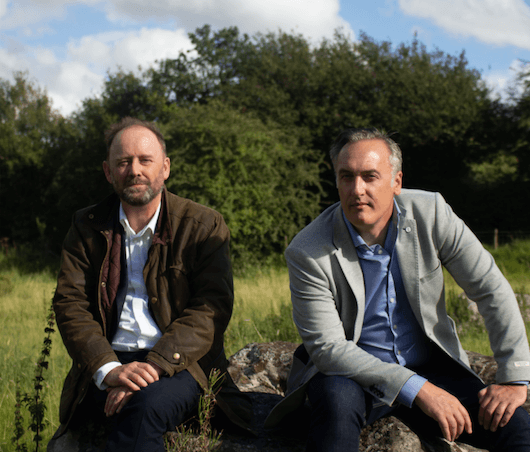
March 2020, and lockdown. Like so many others, business adviser and coach Andrew Hatcher had been running his own company for just a few months, and couldn’t access government support.
How was he financially going to survive the pandemic? A regular business networker, this avenue for meeting new clients and contacts was closed. He also felt compelled to do something to help others in the same boat as him.
So he set up The Cobra Club, and was soon joined by Ed Williamson, membership adviser with FSB. The aim, in Andy’s words, was to “help as many people as possible to survive and thrive during the pandemic”. The club’s secondary function was to provide a pipeline of leads to the men’s separate enterprises – Andy’s coaching consultancy and Ed’s sales training business.
The Cobra Club is an online business centre, offering a mix of networking events, co-working space, advice clinics, socials, support and community, run on a membership basis. It has now grown to 300 members and has been licensed. There are around 30 virtual clubs, each loosely aligned to a geographical area, across the length and breadth of the UK.
But it has by no means been plain sailing. All went well for three months, but then membership growth plateaued.
“My early worries that it wouldn’t work at all proved unfounded, but I did have some sleepless nights when growth seemed to be stalling. It again picked up when we started getting interest from further afield, and adopted the licensing model. We have learnt that as long as we continue to innovate, growth will be continuous and steady,” said Andy.
One problem, and probably common in membership organisations, was the many different personalities involved.
“We had one member who seemed to have a breakdown during a meeting, so we got in touch with his wife because we were worried,” said Andy. “We’ve also had one or two leave and then try to set up something similar. Sometimes people clash, and we have to deal with issues. But all this is a small downside and inevitable when you get a lot of people together.”
And the highs?
“Getting Ed on board for sure. Second, we have lots of fantastic feedback from people who say it has changed their lives and their businesses. I would never had known we’d have such a great impact, and I am very proud of what we have achieved.”
Andrew Butt, Co-founder & CEO of Enable

“My experience and that of other fast growing startup founders I speak to, is that a startup is totally all-consuming. So it’s constantly on the mind at every moment. That’s quite obvious when sitting at the desk working, speaking to customers, prospects, and team members.”
“But I’m talking about all the other times – walking the dog, eating dinner, brushing your teeth, drifting off to sleep, talking with family. And definitely while asleep too while dreaming (usually! Not normally nightmares). There isn’t time or appetite for anything else.”
“Building a company of consequence from the ground up really is like launching a rocket into orbit — a huge amount of energy is needed to achieve the critical ‘escape velocity’. It’s hugely rewarding and very challenging – two sides of the very same coin.”
For any questions, comments or features, please contact us directly.

Thomas Skinner, Founder of Barnaby Cecil
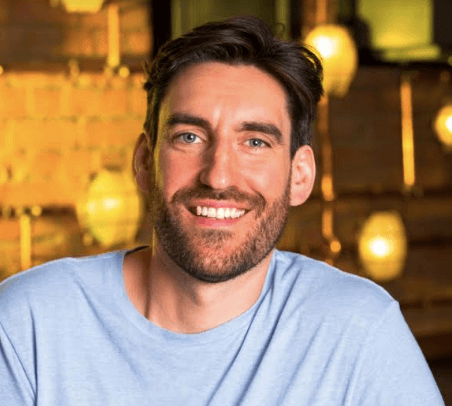
“When starting out and setting up a new business – there are many highs and just as many lows. If at all possible – find someone to launch it with – two heads are better than one, and in my case I was lucky to find someone who was my polar opposite.”
“My co-founder Emma Walker is incredibly organised and builds systems and processes for fun! Whereas I am great at strategy and being creative. And our individual brains simply could not do the other person’s job. I hate spreadsheets and Emma hates anything you can’t calculate in a spreadsheet. So, from day one, we maximised our output because we were able head off in two directions, get things done and then meet in the middle. Emma was able to deal with the bank, the regulator, our suppliers, while I wrote a 5 year plan, designed a website, launched a podcast and an App.”
“You start with very little. Keys to an empty office, with no furniture or internet connection. And slowly, things start to build but there are moments of real doubt at the start – will anybody buy our service? What if the phone never rings? And for about two weeks, it didn’t! I went from a well paid job in a big company with hundreds of clients to zero. So when that first client lands and you deliver a service and they pay – you think, “we might actually pull this off!”
“It can be very lonely at times. Especially when we are forced to work remotely, almost immediately. The hours are very long, even now after two years and it can be very hard to switch off because there’s always so much to do. It’s a constant juggle between keeping your existing clients happy and finding time to promote the company. But, the best feeling of all is when you design a service, with a very specific client in mind and, somehow, they find you and you’re exactly what they were looking for. That’s extremely satisfying. You begin to gain traction and it gives you confidence that others will find you too.”
“One of my top tips is to use freelancers to scale up your outreach and capability. Often, you need someone for 10 hours a month not 35 hours a week and they can bring a wealth of experience from their background and current roles, from which you can benefit greatly. Focus on core employed roles and then outsource as much as possible. It will keep costs down too.”
Noam Nevo, Co-Founder at Osu
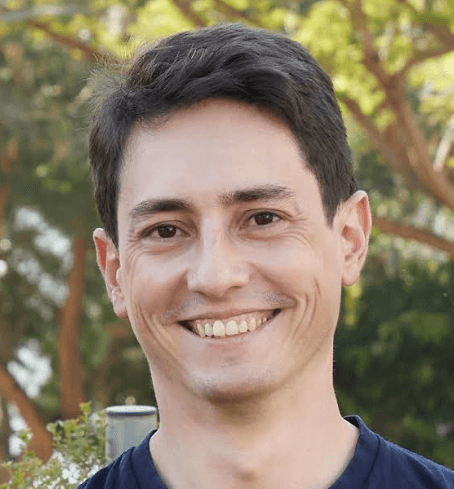
“The rationale for launching Osu was to simplify the day-to-day hassle of getting paid by customers and eliminate the transaction fees that have come to dominate the payments space – to every business owner’s detriment.”
“In a nutshell, our app allows self-employed professionals to get fully paid, fast, and many of our users go out of their way to let us know how much easier the app has made their lives.”
“This makes our entire journey worthwhile – and it’s been some journey! Starting a business is relentless. You have to be mentally prepared for a rollercoaster and you need immense amounts of resilience. At times it can be a 24/7 undertaking, and I don’t think anything could prepare us for the first few months of Osu, and the amount of internal strength and determination required.”
“We launched the business in the early days of the pandemic and so our experience has definitely been impacted by this. Shifting to remote working created its own challenges, because establishing a sense of camaraderie is important for a start-up, especially in the early stages. Being with colleagues, simply getting to know how you are as a team and finding your rhythm, are all parts of successfully forming a new venture. Then there are the laborious processes that are part and parcel of establishing a business.”
“Sadly, not all parts of starting a business are exhilarating! The FCA registration process was a good example of something that required a great deal of time, admin and headspace.”
“A massive high is seeing your product go live – the day it’s born! After the hundreds of hours of slog, of overcoming challenges and problem-solving, to see the Osu app go live was a momentous occasion. Seeing the sign-up numbers grow is similarly indescribable.”
“It’s like watching your child take their first steps. In those early days, I was constantly checking the sign-up numbers. Every single one counted. They still do.”
For any questions, comments or features, please contact us directly.

Ifty Nasir, Founder & CEO of Vestd

“I think everybody that launches a startup goes through that initial period where everything is sunny uplands and everything looks really exciting. And it is, but you’ll probably find that you’ll spend a lot more time working to get it off the ground than you anticipated!”
“For me, I felt driven from the start by the conviction that there was a strong need for Vestd. That gave me the tenacity and confidence to embark on the project. Prior to hitting on the idea of Vestd, I’d thought about just being an investor into multiple businesses but decided that I really wanted to be able to contribute more in some way. That train of thought led me to start Vestd in its first incarnation. Of all the ideas, Vestd had the most ‘legs’ and I was fired up to get going.”
“However, it’s essential to be courageous enough to step back and to edit your startup if things aren’t fitting quite as you’d hoped. I did that in year one after taking some key feedback on board and it’s been full-steam ahead ever since. I’m really pleased that we took the time to reassess things – those moments lead to stronger businesses.”
“The most exciting part for me was when the business model was validated, and for us, that was when the business started making money and I didn’t have to continue investing my own cash into it. That’s a huge endorsement and showed that the business model could scale and grow by itself.”
More from Interviews
- Meet Jaron Soh, Co-founder & CEO of LGBTQIA+ Mental Wellness App: Voda
- Meet Nathalie Morrison: The Founder Behind Astrea, the Fashion-Tech Brand Putting Lab-Grown Diamonds at the Heart of Luxury
- Meet Badr Ward, CEO And Founder Of Education Platform: Lamsa
- A Conversation with Andrej Persolja, Founder of We Fix Boring
- A Chat with Kebbie Sebastian, CEO and Founder of Merge
- Meet Dr Agnès Leroy, GPU Director at Cryptography Tool: Zama
- Meet Roman Eloshvili, Founder of ComplyControl
- Inside Mobile Payments with Bojoko’s Ville Saari
Christopher Bo Shields, CCO and Co-Founder Totem
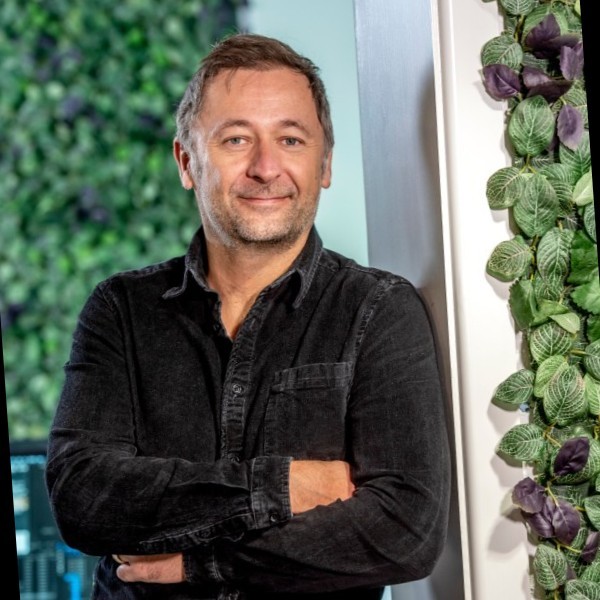
“Listen to your gut. If something feels good, do it and do it quickly. If you have a good idea, your biggest job and challenge is to make everyone else believe in it.”
“We’ve taken rapid prototyping to the next level, which we use to power our creativity. We hold ideas clinics where we can apply a sprint mentality to the creative process, which helps us to quickly decide if an idea is good or not. It’s an effective way of being creative that quickly shows us when an idea deserves to live or die. Sometimes you’ve just got to know when to kill an idea!”
“But most of all, you have to keep in mind what you’re trying to achieve. If you want to create something that is scalable and that makes money, keep focused on that and do the maths. You might find that it’s a nice idea but it’s not going to make money.”
Tom Bourlet, Founder of CBD Sloth
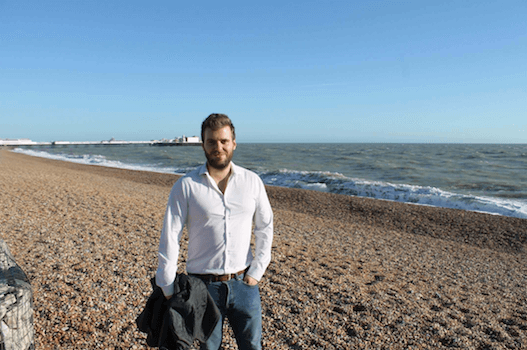
“I started www.cbdsloth.com back in April 2019. The starting point is always quite exciting, but it’s a lot of pressure and the workload takes you through into the late hours and leaves you working all weekend. You need to make sure you have plenty in the bank account, as you should be able to cover yourself if you can’t bring in much revenue during the first few months. This is where many young businesses fall over, hence why so many small businesses fail in their first 2 years.”
“Being the newcomer, you have to spend a huge amount of time networking and building your name in the industry, so brand building is critical. Creating an in-depth content strategy around your persona’s will help to ensure you grow your traffic exponentially each month.”
“Winning Media of the Year at the Cannabiz Summit Awards in November 2019, being only 6 months live, was unbelievable and a great sign of the steps I was taking. However, as I didn’t think I stood a chance of winning so early on, I didn’t take the flight over to Malta. I watched online as they called my name out on stage and someone else came up to collect the award. The instant regret at not getting on a plane and being in attendance was immense.”
“With the business being started before the pandemic started, it was hard to predict how many things would change. I made a number of deals to be a media partner with all the big expo’s in Europe, however they have all been delayed, both in 2020 and 2021, meaning I haven’t had a chance to put a face to the name’s I speak to regularly.”
“The oddest part, in comparison to your average PAYE job, is that the payments are inconsistent. I could have an unbelievable month, then the next could be relatively calm. The payment comes as a quarterly dividend, so rather than considering your average salary, you base how much you earn on what you’ve earned over the last 3 months in the build-up to the dividend payment. This is another factor why you have to save where possible, to cover yourself for any period that might be more quiet.”
For any questions, comments or features, please contact us directly.

Matty Street, Owner of Team Karting, TK-Xtra, Cadet Kart Championship, XTra Treats, X-Kart
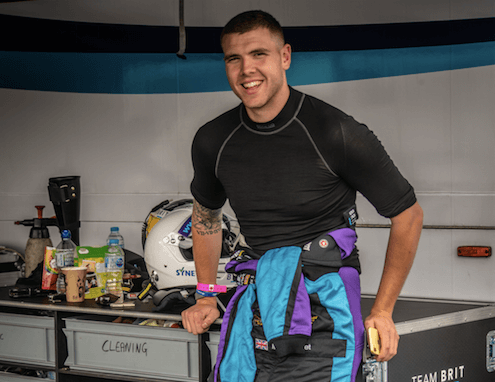
Matty was diagnosed with dyslexia, dyspraxia and Asperger’s whilst at school. He discovered karting when he was 12, which helped him cope with the challenges of these conditions.
He studied motorsport engineering then went on to secure a degree, working at TeamKarting indoor race track in Rochdale throughout. Matty raised investment to buy out the TeamKarting business in 2017 when he was just 19. He launched TK-Xtra in 2019, an in-house kart race team that offers a full progression route from indoor karting to outdoor racing. Soon after, his Cadet Kart Championship was launched.
Having battled to keep the TeamKarting business alive during the coronavirus lockdowns, Matty and his business partner diversified with the launch of Xtra Treats selling sweet treats and deserts. Now, Matty has invested in the importing and re-sale of Italian X-karts, offering the brand to the UK for the very first time, along with a linked karting team.
Matty says:
“When I bought out TeamKarting, I wasn’t starting a new business, but I was taking on a failing business, and in some ways that’s harder. There were a lot of issues that needed to be fixed and I naively felt like I had answers to them all and could fix everything. Accountants and book keepers told me not to buy it but I was resolute that I could make it work.”
“The first few months were awful. I honestly didn’t know how I was going to pay the staff and creditors. I got through it, but it was a wake up call in terms of listening to the experts around me. We fought so hard to get through the financial problems that had been left with the business and it meant our own ideas for development and expansion had to be put on hold. I had so many ambitious plans but I constantly felt like I had one hand tied behind my back, being stopped from doing the things I knew could drive the business forward.”
“Anyone starting a new business is full of ideas, creativity and enthusiasm but you need to temper this and do it slowly. Everything can’t be implemented at once. I had to calm down, take my foot off the pedal and make changes slowly.”
“No one can prepare you for the all-consuming dedication that you need to run a successful business. I had no idea about the late nights and long hours, and for me – doing this at the age of 19 meant that I wasn’t going clubbing and on the ‘lads’ holidays’ that my friends were – I missed out on all of this. I had to be mature and responsible, I had 34 people on the payroll and people that depended on me.”
“I’m now launching my 6th business and I’m probably addicted to chasing the ‘buzz’ of a start up. I love the hustle, the hard work and the grafting that comes with initial few months of starting a business. I love the creativity, the ideas, setting up the branding and marketing. It’s probably why I’ve done it so often!”
“Someone once told me a phrase that has stuck with me over the years, which is ‘ready, fire, aim’. That’s me completely, I go for it, I chase the goals I’m looking for, then I work on the detail. I know this isn’t the perfect way of doing things, but it means I don’t over think things, I trust my gut and I don’t hold myself back by seeking perfection.”
Harry Atkinson, Co-Founder and Chief Data Officer at Sensat
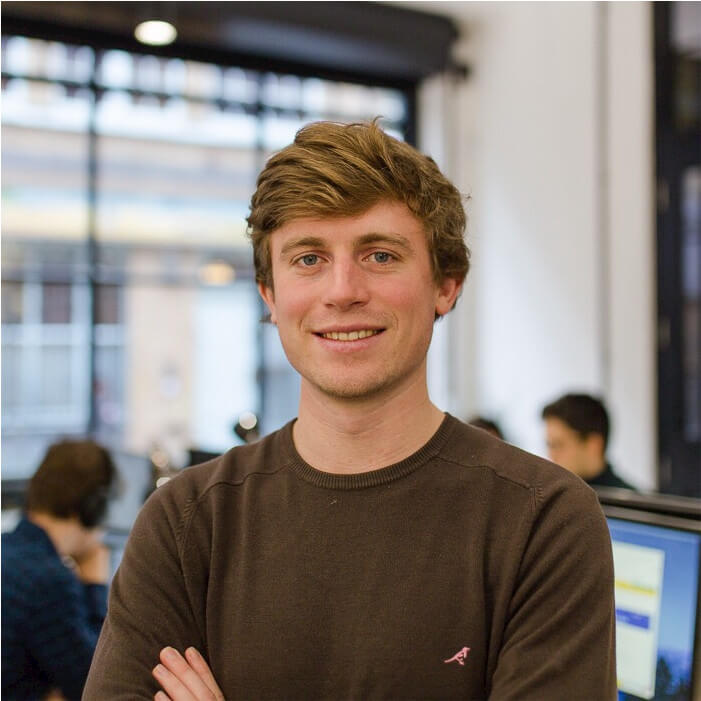
Harry Atkinson, co-founder and Chief Data Officer, Sensat, leading digital twin tech startup, talks about what it’s really like getting a startup off the ground.
1. Even a young dog must learn new tricks
“The point you figure out how to do payroll, is the point people get paid. As soon as you have employees, the stakes are pretty high. There was no greater fear than coming in on the 23rd of every month, making sure that people had received their money in their account. You need to think about employment contracts, HR policies and procedures, VAT returns and accounting. And you need to think about cash flow. When you realise you only have two months in the bank, it’s time to stop buying Coke for the fridge—which you also have to stock, oh and learn how to clean the toilets.”
2. Trust me, I’m an entrepreneur
“It’s an uphill battle to try and win customer confidence, especially when you’re the new kid on the block in an industry such as Construction. I think it’s ok to admit at this stage that we probably got our value proposition wrong at the beginning. We may have ruffled a few feathers trying to convince a “laggard” industry that we knew what was best for them and I think some in the industry still remember this side of us. Finding visionaries to risk their reputation was a big ask of them but I think it’s paid off for those who did. We wouldn’t be where we are today without our early customers and the invaluable feedback loop we have with them.”
3. Of the people, by the people, for the people
“In a start-up, everyone ends up wearing quite a few (hard) hats for long days. Your people need to be problem solvers first and foremost. If we couldn’t fix something, we had to find a way around it. A lot of the time, you are hacking your way to success and finding new ways of working in the process. This mentality allows you to think differently, fail fast and ultimately enables you to scale quicker. Above all else, you cannot take your people for granted. Your people are the lifeblood of the business. Like customers, without them you have nothing. As the business grows, you need to reward your employees for the dedication they give to your vision wherever and however you can.”
4. If you build values, culture will come
“We figured out pretty fast that values are way more important than culture. There is this illusion that “startup culture” is all Pepsi and table tennis, but it’s the winning together and “us against the world” mentality that keeps everyone motivated to work with each other every day. When you can win together working from home in a pandemic, you know you’re onto a good thing. If anything, the pandemic fired us up more!”
For any questions, comments or features, please contact us directly.

Lee Chambers, Founder of PhenomGames and Essentailise Workplace Wellbeing
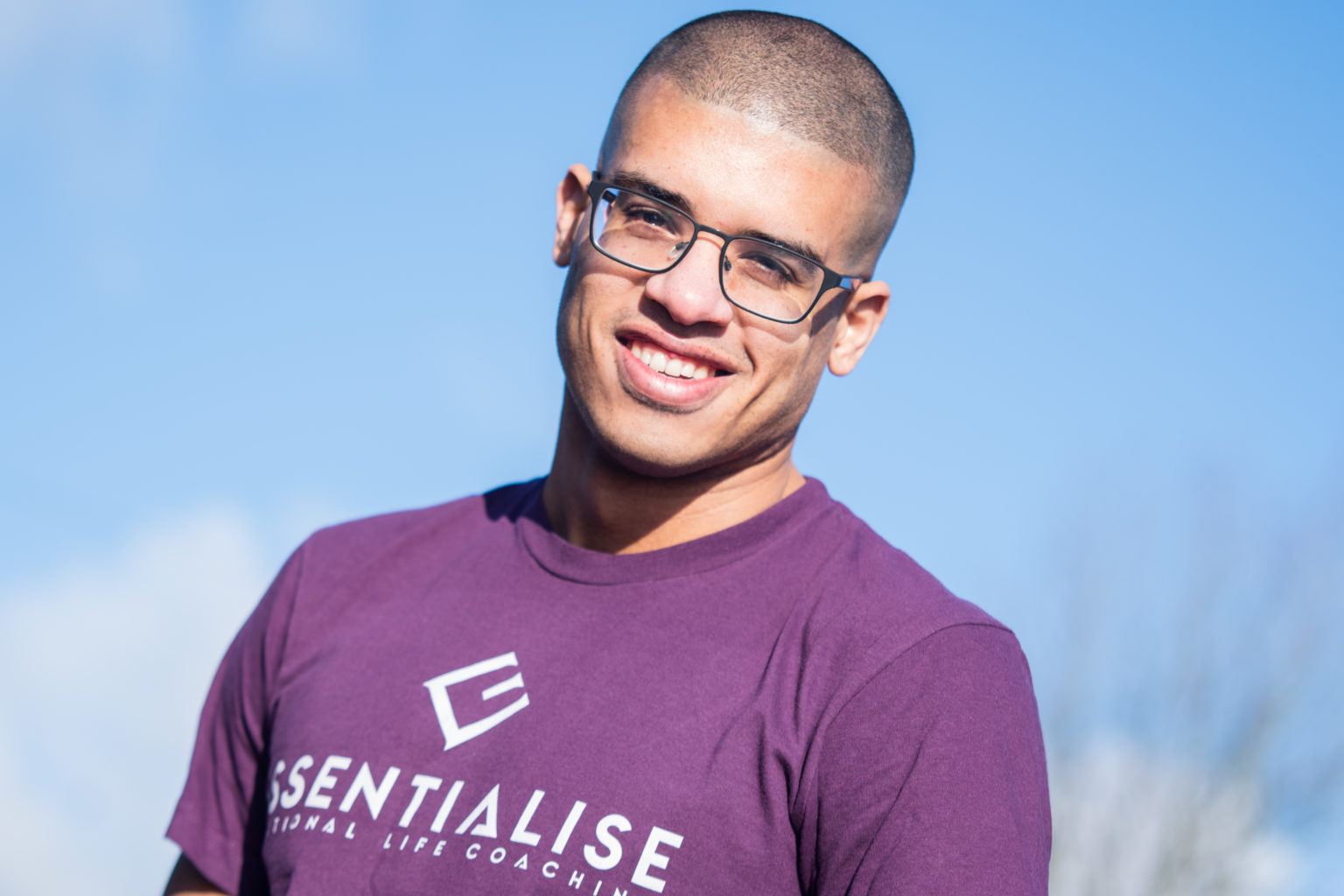
“Amongst all the glamour and excitement that is now prevalent in the imagination of being an entrepreneur, the reality when I started PhenomGames in 2008 was very different.”
“Having struggled to get funding to launch in the economic crash, I had to bootstrap in every way possible. This meant moving back in with my parents and having to sleep in the box bedroom that wasn’t big enough to fit a single bed in. I literally had a mattress and a shelving unit to store stock. I had to sell my car, so I was walking postal sacks to the post office daily before work and during my dinner, as I was still working a 9-5. The business eventually turned my parent’s house into a distribution depot, destroyed their driveway, and I had my family as defacto employees helping me pick and pack orders. There were nights we would be in a chain across the landing until 1am making sure everything was ready to go in the first post before I started work.”
“It wasn’t at all glamorous, but after a year I was able to move out of my parents house and into a space specifically for the business. I also replaced my parent’s driveway. I will never forget one Saturday morning, walking to the post office with four mail sacks and getting hailstoned on the whole way there. This is the reality of running a startup; I look back fondly at the fun times, but it was a period where I grafted and I had plenty of support from those around me.”
Oliver Bowles, Director & Co-Founder at Luxury Loft Co.

“We founded Luxury Loft Co. one year ago. Siri and I are both 25-year-old entrepreneurs, we met at Law School and even have Master’s Degrees in Business, Management and Law, but nothing prepared us for the diverse range of issues we have encountered through running a business.”
“Luxury Loft Co. was created as a side project for us to try and generate some additional income and expand our own skillsets. We bootstrapped and have not relied on any external investment, at first, I think that many people thought we were crazy, especially when we decided to leave our full-time jobs to work in such a saturated market. However, the business has only continued to grow and has become a full-time enterprise!”
“Initially, the setting up of a business is very much a fun and creative exercise, when you discuss names, potential products, market research and the type of USP you are looking to focus on. Once our website was finally established and we had orders coming in, we were faced with the real issues related to running a business in the furniture and home décor sector.”
“Often, stock can be an issue and with the recent difficulties for suppliers obtaining materials (various reasons such as unprecedented demand, Brexit, Suez and Covid) there can be unexpected delays that may affect your end customer. Add to this juggling your other responsibilities such as customer service, updating stock, recruitment, accounting and marketing (just to name a few) it can become an overwhelming endeavour.”
“One of the main advantages to our approach to the business as millennials is that we place a significant emphasis on ethical retailing, innovation and environmental responsibility. Through our “Buy One, Plant One” Campaign, our commitment to plant one tree for every order, we have contributed through the planting of over 1000 trees in Madagascar during lockdown. We have looked to innovate the online shopping experience to appeal more to the modern shopping audience. We have introduced the ability to search for products via image on our website through our visual search function and we have plans to introduce further features that will enable customers to preview how an item will look in their space.”
“Our following has grown exponentially, and we now receive over 6.2m monthly views on Pinterest alone! We are extremely excited for the future and have even bigger plans that we are hoping to implement soon.”
For any questions, comments or features, please contact us directly.

Nikki Wheeldon, Co-Founder at Jampot Business Support and Co-founder at Communal Brew
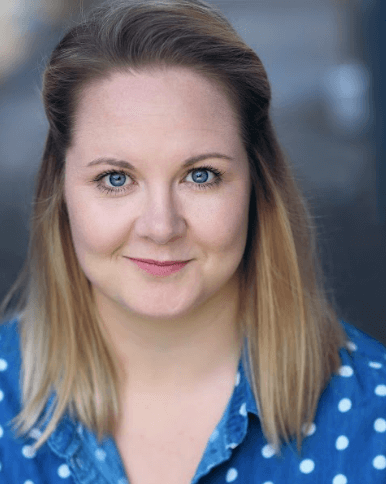
“Starting a business is something I’ve done a few times now and I have to admit, it never really gets easier.”
“It can be nerve wracking, I think you really have to be brave and confident in what you’re offering out to the world but you also can’t get caught up in waiting until things are perfect before you launch or you run the risk that you never will. A few years ago I co-founded an app and we did exactly that. Spent way too much money and time on trying to make it perfect and in the end we never even ended up launching it, we learnt ALOT from that venture and have thankfully never made the same mistakes again.”
“With Jampot we did things differently. We quit our jobs and gave ourselves a 3 month runway, it was quite the leap of faith but it meant we had to make it work and we didn’t have the luxury of waiting for perfection. We had to hustle and we most certainly did that. Thankfully we made it past that 3 months and are now just about to hit 5 years with 18 team members and double the turnover we did the previous year.”
“I have often found the fear of failing would drive me and that only increased with a couple of not-so-successful businesses under my belt. It’s hard to shake off the feeling that it might not all work out but I do think it can be detrimental as it can push you into making the wrong choices or working with the wrong clients/partners, maybe even under charging or under valuing your offering.”
“The fear needs to be pushed aside, instead I tried to focus on the ‘what if?’. What if it did work, what if we could have a team, scale the business etc. Dreaming big is no bad thing.”
“Setting up a business on your own can be lonely. It can be hard to make all the decisions on your own and to have that accountability of making sure things are happening when they should so connecting with a community of other founders or finding the right co-founder make a huge difference in lightening the load. Controversially for some, my co-founder is also my husband and we love it!”
“Running your own business is a total rollercoaster but it’s definitely worth it.”
Mark Boost, CEO and Co-Founder at Civo

“Having been exposed to computers from a young age, at 20, I started my first business, LCN, a hosting company that started out with domain names. I grew it over a period of 18 years to become the UK’s fifth largest hosting company. I sold LCN in 2019 and embarked on a new startup, Civo, the world’s fastest Kubernetes hosting service built on K3s.”
“As with all start-ups, especially for a cloud provider, access to funds is imperative to build and scale quickly – after all building out new data centre regions doesn’t come cheap! Since launching into beta nearly 2 years ago, we’ve had tons of VC companies knocking on our door, but at this stage we decided not to take VC money. This seems a departure from the norm nowadays, but for me it was vital that we stay true to our vision. We want to be able to freely focus on our roadmap, without any potential distractions or interference that can sometimes be associated with VC money. Instead, we focused on finding private investors to bring onboard to ensure we can stay fully focussed on our vision.”
“To start a successful business, you need to get the culture right from the very start. Those first employees define the culture, so it’s critical those early hires match your values. On top of this, you should make sure to listen to the advice and opinion of those around you. Community has always been at the heart of Civo. During the development process, over 4,000+ beta testers joined us from 113 different countries! We’ve had incredible feedback sessions with seasoned Kubernetes experts and beginners alike, data scientists and machine learning engineers, cyber security specialists and systems architects.”
“Starting a business takes a lot of work and commitment, and you need to have a thick skin. But it’s worth it. I’ve learnt so much along the way and met some incredible people. I can’t imagine a career path with greater job satisfaction – turning your dream into a reality doesn’t happen every day!”
For any questions, comments or features, please contact us directly.

Sonya Barlow, Founder of LMF Network

“In May 2018, I decided to launch LMF Network (lmfnetwork.com) as a female empowerment and diversity initiative to connect with like-minded individuals, where the first meetup style was a brunch.”
“Three years later, we are a global social enterprise that is enabling, educating and empowering women and underrepresented groups into tech, digital and entrepreneurship. We are a community of over 35,000 followers across our social media channels.”
“We have launched the largest virtual mentoring programme in the UK, supporting 600 participants across 14 countries. We have facilitated more than 200 workshops and upskilled over 7,000 people.”
“I still find it crazy that one seed could have grown into this fantastic business with a global presence. But, it hasn’t been an easy road. It has had its ups and downs, especially with Covid-19.”
“Almost every entrepreneur I have talked to has told me that they had to rethink how to keep their income streams or what changes need to be done to stay in business.”
“That’s why I want to share three realities that I experienced during my entrepreneurial journey that can help anyone thinking of starting their own startup. Doubts and insecurities are normal. You just have to keep true to your purpose. No one teaches you to be an entrepreneur. So, it can be quite daunting when you are exploring setting up your own business.”
“Insecurities about your skills and your drive to launch your startup will appear. You will doubt whether being a business entrepreneur is worth it or whether it might be better to go back to full-time employment. What worked for me was just a constant thought of “This is what I am supposed to be doing, and I will make it happen”.”
“But, entrepreneurship doesn’t have to be a lonely road. I surrounded myself with brilliant people. They were – and are – a support system, cheerleading squad, and colleagues that help me with skills or topics that weren’t my strong points.”
“You don’t need to have it all figured out to start. You always think of entrepreneurs as people that graduated from Harvard or Oxford or that they need to secure hundreds of thousands of pounds in capital to start.”
“You think they have a perfect, formal business plan with everything measured out. The reality of starting a business is entirely different. It can happen in your room with only a laptop and an idea. That was how my social enterprise began. It started as a side-hustle, as a LinkedIn group that I set up to meet people I could identify with.”
“It has now grown into a global, accessible network that specialised in digital workshops, a mentoring programme and business coaching to upskill and create community. Setbacks are a constant, and you just have to roll with the punches. So, make failure your best friend. It is a fact that at any point, you and your business will suffer a setback.”
“It is unavoidable, and it can happen at the planning, launching or operational phase. It can be as small as having to re-do your website or as stressful as having to rethink your entire business model. But, what I have learned is to take those challenges as opportunities to do things differently and find new ways to do the same thing.”
“When we first started, in my mind, the brunch idea was awesome. But, in reality, no one showed up for the first three brunches. I knew that I was passionate about the cause, but I was unsure how to execute it. That failure moment taught me so much about building a community, the importance of personal branding and how purpose must drive every decision.”
“Another example is that before the pandemic, LMF’s workshops and panels were in-person events that allowed people to upskill and network. We had to change our delivery model because it was not possible to have anything face-to-face. But, now that things are opening up, we are going back to in-person or hybrid events.”
“That is one of the many things we’ve had to deal with during Covid-19. What you learn is that you need to constantly learn and evolve.”
“You have to keep thinking about what’s next, what needs to be improved, and sometimes take a step back and rethink your business. But, being an entrepreneur is extremely rewarding. Maybe what I shared above makes you wonder why anyone would want to be an entrepreneur.”
“The truth is quite simple. The benefits of making a positive change in your community outweigh the doubts, fears and stress of setting yourself up as a social entrepreneur. It’s tough, and there are bad days, but the bad days lead to new experiences and a sense of self-awareness, which I didn’t have working in a corporate setting.”
“That conviction of knowing you are supporting people into reaching their full potential will keep you motivated at your lowest and the hardest points of your business.”
Tom Scott, Founder of Little Mesters

Tom Scott founded digital agency Little Mesters in August 2020 and earlier this year launched a podcast – I Started An Agency – to share his honest reflection of the journey of a new business owner.
He said: “Starting a business is exciting and exhilarating, as well as fairly daunting at first. At Little Mesters, we’ve enjoyed some real successes but also experienced growing pains. The reality is that starting a business can be double-edged sword because you’re able to have autonomy but are also constrained by the time available to wear every hat necessary.
“The highs are incredibly high but the lows can feel lower than when you’re employed. One important learning point I took away early was to find a very good accountant who knows the industry and supports a business to grow. Overall, my feeling is that if you’re passionate about growing a business and knowledgeable in your field, then you’ll succeed. ”
For any questions, comments or features, please contact us directly.

Adnan Zaheer, CEO and Founder of Seers

“Being an entrepreneur is not a simple task. Of course, it seems all cheesy in Hollywood films where people just turn riches from rags, thus conjuring up the attractive notion in the people’s minds- that it is very classy to be an entrepreneur. And there is an effortless way towards it.”
“Take it from someone who initiated his first business at the age of 14 years that it is difficult and honestly very daring to choose this as a career path.”
“But I can assure you once you take this bumpy road and walk out of your comfort zone, you just realise the world has so much to offer, and you have so much to learn.”
“I am Adnan Zaheer, CEO and Founder of Seers. Seers is the leading privacy & consent management platform for companies worldwide.”
“Thousands of businesses trust it. Founded in London in 2018 and now with a team spread around the globe. Seers offer innovative solutions covering consent management, assessments, certifications, policies, documentation, and a privacy experts platform. Seers is not the first start-up on my list as I was the founding member of a successful start-up Start Pension.”
“Smart Pension eventually became the second-largest pension auto-enrolment company. It is my personal experience that you can surely make something out of nothing with diligence and effort, which is the utmost quality any entrepreneur should possess.”
“My next entrepreneurial venture was as the co-founder of the PwC Raise programme. The programme helped scale-ups raise series A of equity funding. It is now a fast-growing business.”
“Coming back to Seers. I am pleased and proud to finally see it catching pace after three years of relentless effort. As of 2020, our customer number has grown by 1040% in 100+ countries and is a participant of the Information Commissioner Office (ICO) regulatory sandbox.”
“Here, when I am quoting Seers’ achievements, I remember my three-year-long, arduous journey. There were times when I saw all my efforts going in vain, and there were some moments where I thought this is the end.”
“But what type of entrepreneur you are when you haven’t experienced these times. As an entrepreneur, always remember that no matter what you are going through, you will always be on the winning side if you have clarity of vision.”
“Honestly, being an entrepreneur is challenging, primarily when you have worked in larger organisations in your past. However, your all difficulties seem worth it when you start getting rewards.”
“Some learnings that I will offer from my long journey of entrepreneurship are:
- You keep yourself and staff motivated.
- You don’t need a personality. You need clarity. By clarity, I mean “clarity of vision” in terms of what do you want?
- Use your leadership skills and learn from mistakes.
- And don’t change for the sake of change.
- Embrace your mistakes with open arms because you can’t learn until you don’t do it wrong at least once.”
Andy Hibbert, Founder of Karshare.com
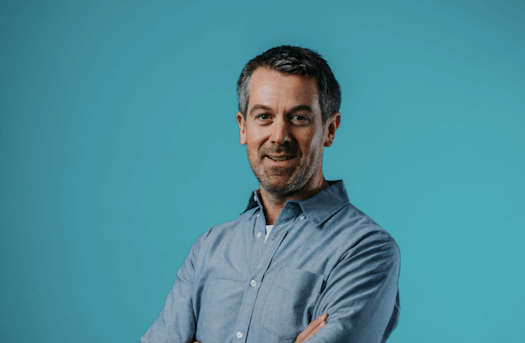
“Starting a business is a hustle that can be all-consuming. It isn’t balanced; there are excessive highs and lows every day, week, month, year.”
“One simple analogy is thinking about a penny arcade. In order to get the business off the ground you need to find a miracle penny that drops and makes all the other pennies shunt forward and fall (off the ledge) into place at the same time to make it happen. When you think of the odds against you to achieve this, it helps to understand the perspective and energy required to keep trying. A relentless pursuit because your belief in it, and what it can do, is larger than all the obstacles in your way.”
“I live by the quote “nothing is impossible – we just have not found a way yet.” No matter how unachievable it seems – it encourages you to think around it differently and from a different perspective.”
“The highs can be euphoric. When a significant partner believes in your idea and commits to working with you and the team – it is a big, and much needed, injection of positivity. Engendering support like this is a huge part of getting a start-up off the ground. As part of this process, levelling your expectations and exploring “how could it be possible” rather than “will you do it this way” is a critical approach. Even when the initial response seems impossible, by exploring “how it could work” gives colour to the next piece of the puzzle to solve. And it’s this that drives all start up teams; we simply love to solve big problems and overcome the seemingly impossible challenges.”
“The lows are like body blows and can completely take the wind out of your sales. Fund raising can be like this at times. All businesses need oxygen to survive and for start-ups that is funding. Money to build the MVP, to learn and to improve – and eventually scale to profits.”
“What’s important is being realistic with expectations. Our own research suggested 7% of people will share their car and 27% might so we took the same view for investors, but were more brutal with the truth. If we spoke to 100 investors – seven would invest – 93 wouldn’t. That’s a lot of rejections to manage. The lows can come like buses; weeks of engagements which could end with all 93 in succession saying no. The last minute, 180 degree about turn from someone – after spending weeks and weeks putting all the pieces in place – and suddenly all bets are off, is probably the worst. It’s vital, however, to get this feedback; so you can be agile and modify the next approach. Being prepared doesn’t mean being the same.”
“I’m lucky to have great people around me, a hugely supportive wife and family, and others nearby who provide really smart advice. One such coach taught me to see a blessing in every crisis. This is an incredibly powerful way to think and has helped me through even the darkest times of launching a start-up. It’s simply figuring out why we should be grateful for such events happening. Literally saying to yourself ‘I am grateful because…’ You’ll be surprised what you can write down that is positive even in the direst positions. It drives energy levels up quickly and gets your refocused and empowered.”
“There is never a truer expression than we are always learning. Being open to this, understanding mistakes will be made, that you will read the wrong signals sometimes – means you can always learn from it. As Socrates said, “Education is the kindling of a flame, not the filling of a vessel.” If you carry that flame every day, you have a much better chance of success.”
For any questions, comments or features, please contact us directly.

Jennifer Johansson, CEO of Placed App
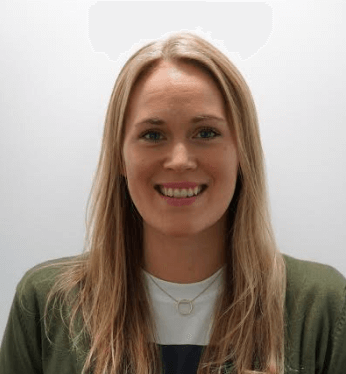
“The clue is in the name with regards to a startup. Plenty of people have fantastic business ideas, but to make it a reality, you have to make a start.”
“Starting up a business is scary and there are risks. Perhaps you have to leave your steady income behind in order to set up the business. You may need to invest capital and persuade others to invest theirs. You will most likely hit some tricky hurdles along the way and some of those will sting quite a bit!”
“Some great startups fail and yours might too – that is a reality that all startups face in the beginning.”
“When it works though, it is so rewarding to watch the business grow and to work with talented people who are as passionate as you are about the future.”
“With Placed App, I had the idea of a recruitment app in my head for some time. Working in the hospitality sector, I was constantly hearing from employers about their struggles to recruit and retain staff. It’s a problem that has long plagued the industry.”
“With such great advancements in tech, I couldn’t understand why outdated recruitment practices remained dominant. Particularly as the bulk of this workforce is aged 18 to 25.”
“There was a mismatch between the way young people wanted to look for work and the way that employers were trying to find them. Dating apps had been matchmaking compatible couples for years. Why not recruitment?”
“As with many tech startups, I needed funding early in order to build the app and get it to market. Convincing investors to come on board at concept stage is hard work. I meticulously prepped pitches for hours. You only get one chance to impress which is a heady cocktail of stress and adrenaline.”
“Once the funds are secured, there’s a whole new weight of responsibility on your shoulders. Now you have to get the idea to work. For Placed App that meant huge amounts of testing. Our goal was to achieve quality matches rather than quantity. We had to persevere and not rush out which takes discipline.”
“We got there and now we have new challenges as we continue to grow. I still work very long hours and my time is never truly my own. That is my reality of running a startup. I wouldn’t have it any other way.”
Andrew Jervis, CEO and Co-founder of ClickMechanic
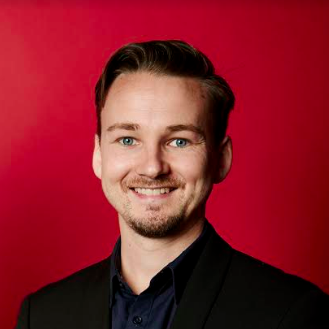
“ClickMechanic is not your typical e-commerce business. When we started in 2012, it was an industry-first and no one had ventured into the car repair space. As an entrepreneur, when you’re determined to disrupt a new marketplace with your idea, you have to be sure of one thing – it’s not going to be an easy ride.”
“Along with the fact that our startup was attempting to disrupt the car repair space, we had multiple challenges to make the company’s vision of making car care easy for everyone everywhere come true. In the initial days, there were naturally going to be cash flow challenges which meant that as a founder, I could not even afford to pay myself. Building a company from the ground up is an incredibly arduous task in itself so imagine doing that while being nearly broke! Thankfully, today ClickMechanic is at a more mature stage where we’re much more diligent about our costs and revenues while maintaining a buffer in the bank for emergencies (such as a global pandemic!).”
“When you’re a small, growing team, it’s absolutely crucial to maintain the values and culture of the company. Along the journey we have on some rare occasions made some hires that were not the best cultural fit which led to a temporary imbalance of the team dynamic. We did learn from this and we’ve now grown into a fantastic team. My advice to budding entrepreneurs: really invest a lot into your hiring process because if you get it wrong it can be much more costly down the line.”
“As taxing as it is to be a startup founder, it can be equally invigorating. It’s important to celebrate successes – both big and small. When I first moved to London in 2012 to join the tech accelerator Entrepreneur First and started building our company with my co-founder Felix, I remember a particular investor was quite impressed with our offering. After a few meetings with him, he wanted to be our first investor and was going to make us an offer! This was nearly a decade ago but at that moment, this was the single most important moment of validation we needed to push ourselves to build our company. We didn’t go ahead with his offer for other reasons, but this experience gave us the much-needed confidence that every new startup founder yearns for.”
“In my experience as a founder, I’ve learned that it’s important to take a step back every now and then and look at how far you’ve come as an individual and as a company. Thinking about all the lives you’ve touched is quite humbling and is a great reminder of why you decided to become an entrepreneur in the first place.”
For any questions, comments or features, please contact us directly.

James Coombes, CEO and Co-Founder of Vector.ai
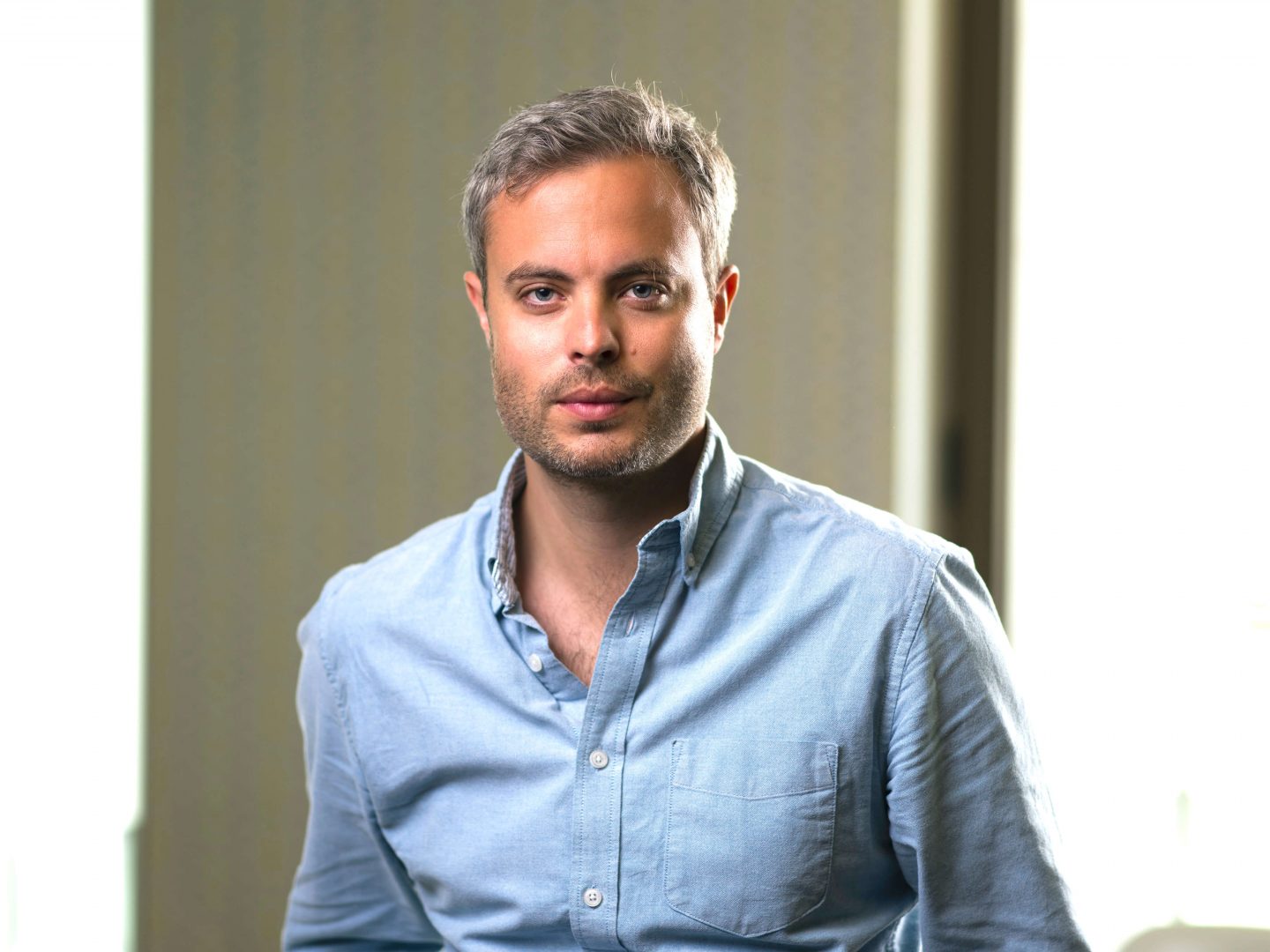
“We set up vector.ai because we care deeply about the human experience at work – and it’s this passion that has made starting a business so enjoyable and rewarding. We have a strong team behind us, with each and every person offering different ideas to the table. I am always being challenged. No new approach is off the table which I believe is fundamental to success.”
“However, starting a business is by no means easy. The hours can be long and sometimes it might feel like you’re taking two steps back. Things will not always go to plan so, as a founder, you need to be prepared to adapt and learn from your mistakes. Our business is nearly four years’ old, and we are still learning from our customers, partners and the industry. It’s this openness to learning and change that has enabled us to continue to grow and differentiate us in the market.”
James Cook, Executive Chair of LeadRetriever
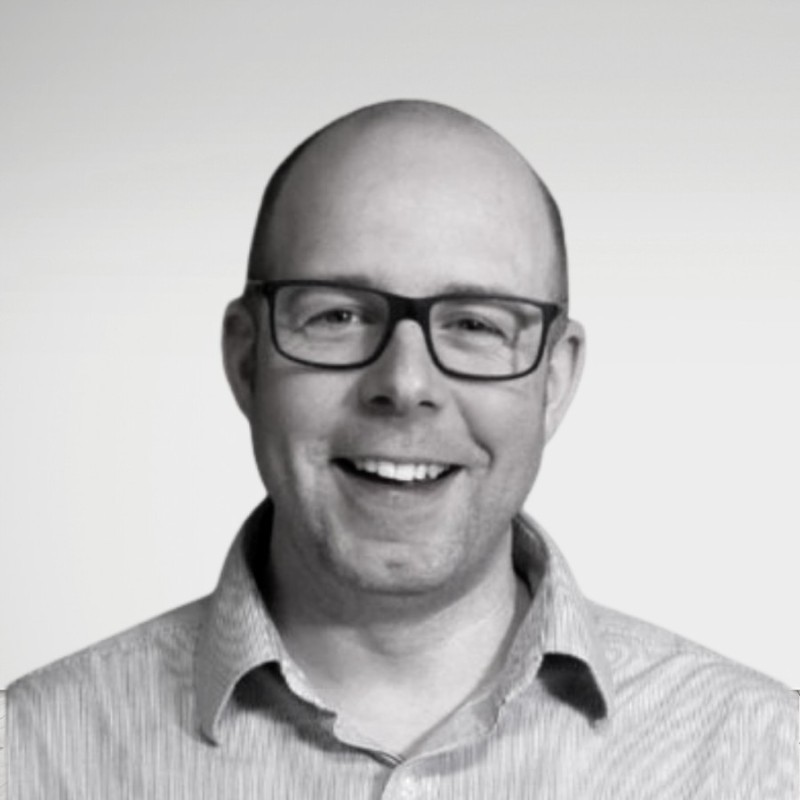
“Having grown SpiderGroup for nearly two decades, starting LeadRetriever is definitely a step into the new. And, of course, starting a business in the middle of a pandemic brings its own challenges.”
“I knew I wanted to create a lead generation company to complement the work SpiderGroup does. During the first national lockdown, we started running weekly free networking sessions for businesses across Bristol and beyond, to help keep everyone connected while in-person networking was off the table.”
“At these events, I met Paul Smith, a lead generation expert who was just what we needed to push forward with our plans and build LeadRetriever.”
These are my top learnings:
Have experienced support / mentoring
“I am lucky that I have learned from my years with SpiderGroup and MastersConnect, another of my businesses, but starting a new business during an historic year is definitely different.”
“We have skilled hands-on help from our business coach Gary Keating, to help get everything set up the best way for success, and to bring extensive experience in a range of businesses to the table.”
Have a definite vision
“If you have an idea for a business, and it solves a particular pain point or a need, then that’s a good starting point. You need to have a very clear vision about where you are going with it.”
“You wouldn’t drive your car without knowing where you’re going, and it’s the same with the business – you don’t want to start a business without knowing where you’re planning on going.”
Get the right people on your team.
“Once you know where you’re headed, you need to have the right people with you. Getting the management team together has been the easiest part, whereas recruiting new hires who have the right experience and attitude has not been so straightforward.”
“In fact, this challenge was a surprise to us, and it’s made us look at new recruitment processes. Every opportunity to learn is a good one, especially when they’re a surprise – even if it can be frustrating.”
Getting superb results for your first clients
“With a new company, you have to work out the key messages and be able to explain to people the benefits and what you can do for them. Because their concern is always going to be the output and understanding the point – to their business specifically – of what you’re offering.”
“Having a new company where you haven’t got any proven track record is tricky at first – doing brilliant work for those first clients is crucial. Then you have some solid case studies and testimonials, and you start to build a positive reputation and trust.”
For any questions, comments or features, please contact us directly.

Nicola Hartland, Chief Revenue Officer at CyberCrowd
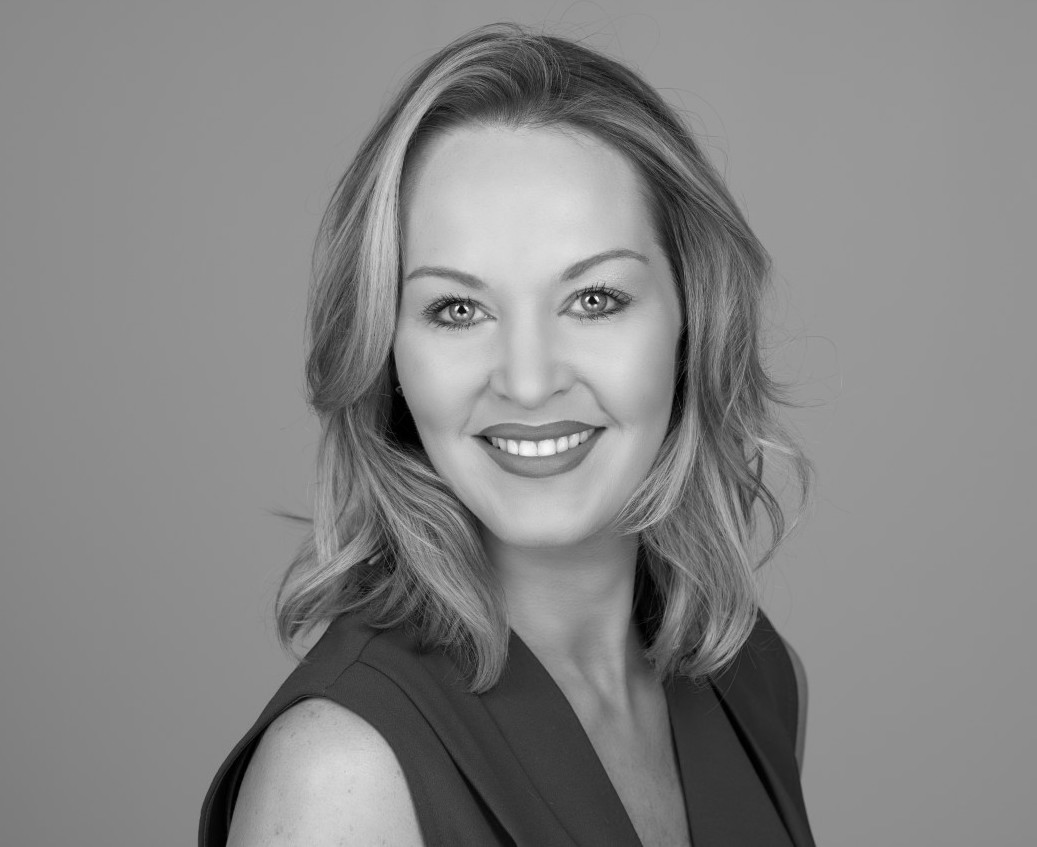
“The hardest and most VITAL lesson to learn is getting the legalities in place before you take one step into a business. It’s so easy to get sucked into the whirlwind when starting a business. So much is going to happen so quickly, that before you know it you will be months in with potentially very different views on input value between yourself and any partners or investors.”
“If everyone is clear from the get-go on their agreed contribution, whether financial, intellectual, physical or all three, then there is no conflict. Remember, you can’t renegotiate something you never agreed. Be straight and secure from the beginning and you will form a strong working bond with your fellow stakeholders, dither or delay and you will appear at best disorganised and at worst incompetent. I have learned hard lessons through the creation and successful exit of a series of companies, that nobody disrespects clarity.”
“My next important lesson, (and let’s face it, we women know we are the worst at this) is KNOW YOUR WORTH AND STICK TO YOUR GUNS! We’ve all witnessed the horrors of Dragon’s Den as the Dragons ‘scoff and tut’ at the entrepreneurs when they present their company value. So few of them fail to point out that whilst, yes, their idea may be worth X, what the Dragons are investing in, (and the Dragons WILL often acknowledge this), is the entrepreneur. They like them, they recognise their potential, and they believe in the their ability.”
“Whilst an initial idea may get a return, what we are all truly selling as business creators, is our own ability and drive. So value yourself, when you value your assets and stick to your guns. I have raised millions in investment through my career, but I have always counted my value within my contribution to the assets of my businesses.”
“Finally, the best thing about running a business? At this point in my career, the greatest reward for me is developing people. We all want to make money, of course, but doing it with the team that you bring with you is so much more rewarding.”
“I want to know at interview stage what a person’s life goals are. There’s no point training people to leave you, financially or practically. What you want to do is train them to stay with you. You do this by matching your goals for them with their goals for life. If they want to buy a house, help them with a plan. If they want your job… teach it to them! I have received letters from parents thanking me for taking their son/daughter on in their life plan. Loyalty goes both ways and pays dividends all around.”
Nico Nicholas, Chief Executive Officer of Tree4Travel
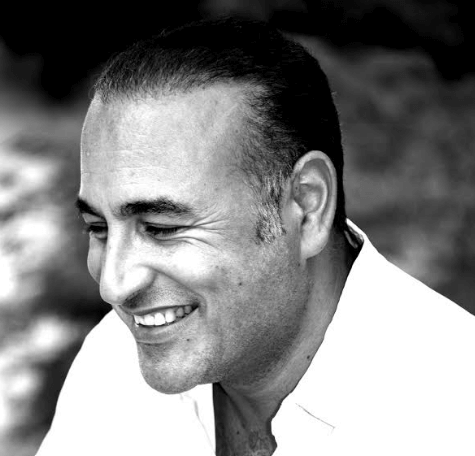
“In my experience people generally start their own businesses for one of two reasons; because either they have a spectacular idea and recognise a gap for it in the market or are simply fed up working for someone else.”
“The former is, in my view and experience, the best reason to start a company. The latter is not, as you will always ‘have a boss’ – whether it be the bank, a supplier, an investor, or even your customers, you will always have to answer to someone! Besides that, you have to be ready and willing to do whatever it takes, so it’s not necessarily an easy journey, as there’s particularly a lot of stress, hard work, and remember that it is now you who is responsible to ensure everyone is doing their job correctly, and that they get paid at the end of the month!”
“I liken a start up to a two-year old toddler – it’s everywhere, wants to do everything, but isn’t sure how to, and needs 24/7 supervision! So really consider your current life and whether, actually things aren’t so bad the way they are before you dive off the high board.”
“If you do decide to dive in, there is nothing like starting your own company – being able to make the decisions and have the ideas without running it past others (other than your partners if you have any), living the highs, and dealing with the lows, but also reaping the rewards if you’ve got it right.”
“Being involved in every moving part, and seeing your idea come to life – the best part is when someone compliments what you have created, or even better, buys from you. I have started a number of companies in different sectors, and I’ve loved every one of them – how did I do that when I knew nothing about that particular industry? By being honest, asking questions, listening and learning – if you enjoy learning, then that’s half the battle won, because there will be an enormous amount that you’ll have to pick up – whether it be simple accounting, to PAYE, to setting up an exhibition stand etc. – there are probably a million moving parts.”
“My favourite part is actually meeting people, and even if they don’t buy, understanding what they need or what they like – always be inquisitive. I am at a point now in my business career when I can choose to create a business for reasons of requirement, not need. I have built Trees4Travel with my wife Elkie, because we knew we could bring our experience and skills to a business that could make a positive impact on our planet. There is no better business high than that sort of a success.”
For any questions, comments or features, please contact us directly.

Veena Giridhar Gopal, CEO of SalesBeat
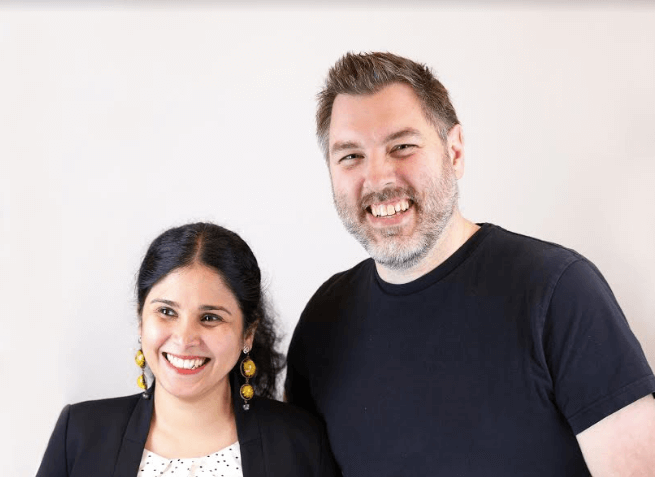
“Founding a start-up can be tricky. You may have a great idea, but it needs to be validated, and unless you’ve decided to go the solo founder route, you need to find a co-founder who believes in the idea and has a complementary skill set.”
“I met my co-founder, Alex, at Antler’s inaugural program in Stockholm. It helps that we understand our individual strengths and play to it. We also have similar values & enjoy working together despite not having met in person for over a year now.”
‘There are times when the journey is highly rewarding, like when you find your first, second or even 10th customer & when they tell you how much your app/product has helped them.”
“But equally, there are times when the going gets tough like when covid hit and we had to pivot. We found that a few basics helped us get through the tough times.”
Contingency plans are great and let you pivot quickly
“Things were going well for us in our first year & we were growing fast. However, just after we passed the 1 year mark, covid hit & we had to think quickly on our feet. We ended up going from a marketplace business to a software business in 2 months. This was a tough time for us. We never planned for something like Covid to happen! No one did. But start-ups need to keep an eye on any external factor that may pose a risk and have a back-up plan.”
Solve a real problem and be open to change
“It was when we needed to pivot, that we realised this one. If you are not solving a real problem, there is no actual need for your product. And if you are not open to change, when market conditions change or when you get feedback from users, you will not be in a position to move in a different direction.”
Start-ups are all about people
“Alex and I respect each other’s abilities and differences. We both know that our perspectives may be completely different from each other and this is a product of our background. We know our diverse perspectives improve our business outcomes.”
“And then one rule of thumb that we go by – raise external equity funding only if you need it. You are, after all, giving your investors a part of the company!”
Jenni Riley, Co-Founder of ITARMI
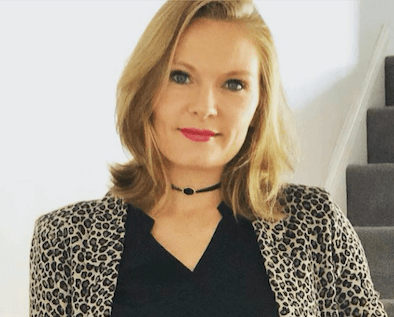
“Four years ago my husband and I made the biggest decision of our lives: launching our own business. We were entering the world of IT services, and whilst Brett had years of experience in this sector, it was completely new for me. I would be lying if I said this wasn’t hugely daunting, but seeing his confidence and passion made me certain it was the right thing to do.”
“Business started off slow but steady; the initial deals were small but enough to help get us off the ground. Then, within six months of trading, we hit the jackpot and managed to secure a contract we could have only dreamed of. We worked tirelessly to ensure we had everything in place to deliver and the feedback was extremely positive – we were over the moon!”
“Then, six weeks later, it all came crashing down. We got the dreaded news that our supplier had gone into liquidation, and the support network we had built fell away before our eyes. Not only this, but some of the people we had trusted most ended up seeing this as an opportunity to step in and steal the contracts we had worked so hard to secure.”
“The following months were spent negotiating like never before, and quite literally begging for support to get back on our feet. After all, who would want to lend money to a company with barely a year of accounts under their belt and a pipeline showing nothing but losses?”
“After a storm of stress, a moment of calm eventually arrived. But just as it felt like the tide was turning, another bombshell hit. I realised that we were suddenly unable to access our bank account, and after some frantic phone calls found that it had been frozen by our factoring company without warning, leaving us unable to operate at all. The weeks that followed were incredibly tough, faced with the constant worry of losing everything we had. Our saving grace was a local MP who helped put an end to our legal battles and get us back in business.”
“It was an uphill struggle for at least another year, but with sheer tenacity we came out the other side – and believe it or not had a lot of fun on the way!”
“So, what’s it really like starting a business? I think this quote from Winston Churchill sums it up well: “Success is not final, failure is not fatal, it is having the courage to continue that counts.”
Rémy Astié, CEO of Vauban

“Building a startup in any industry is not without its challenges, but innovating in fintech presents a number of unique obstacles around regulation for those looking to disrupt the space. At Vauban, we’re revolutionising and streamlining the centuries-old process of creating an SPV (Special Purpose Vehicle) – a legal entity created for a limited purpose, like investing in a startup. Our technology makes it easier for experienced investors to pool capital for private investment into alternative assets. As a result, we have to be exacting in our approach to addressing a host of legal components, regulations, financial modeling and complex accounting. These are challenges that many other fintech startups will face too, especially those who are “full-stack” – who offer an end-to-end service to end customers rather than licensing software to incubent players.”
“Getting the right framework in place is make or break for fintechs. However, there are clear and significant advantages to entering such an industry – for those who can create viable solutions in fintech, the potential returns can be sizable and scaling a business can be achieved much faster than in other industries. We’re conscious that there will still be more challenges ahead, but there is huge demand for technologies reshaping private investing. From retail investors looking to invest in crypto currencies, to experienced investors looking for a route into the pre-IPO market, we’re excited to see how fintechs can effect change in the market”.
For any questions, comments or features, please contact us directly.

Ranjan Singh, CEO and Co-founder of HealthHero
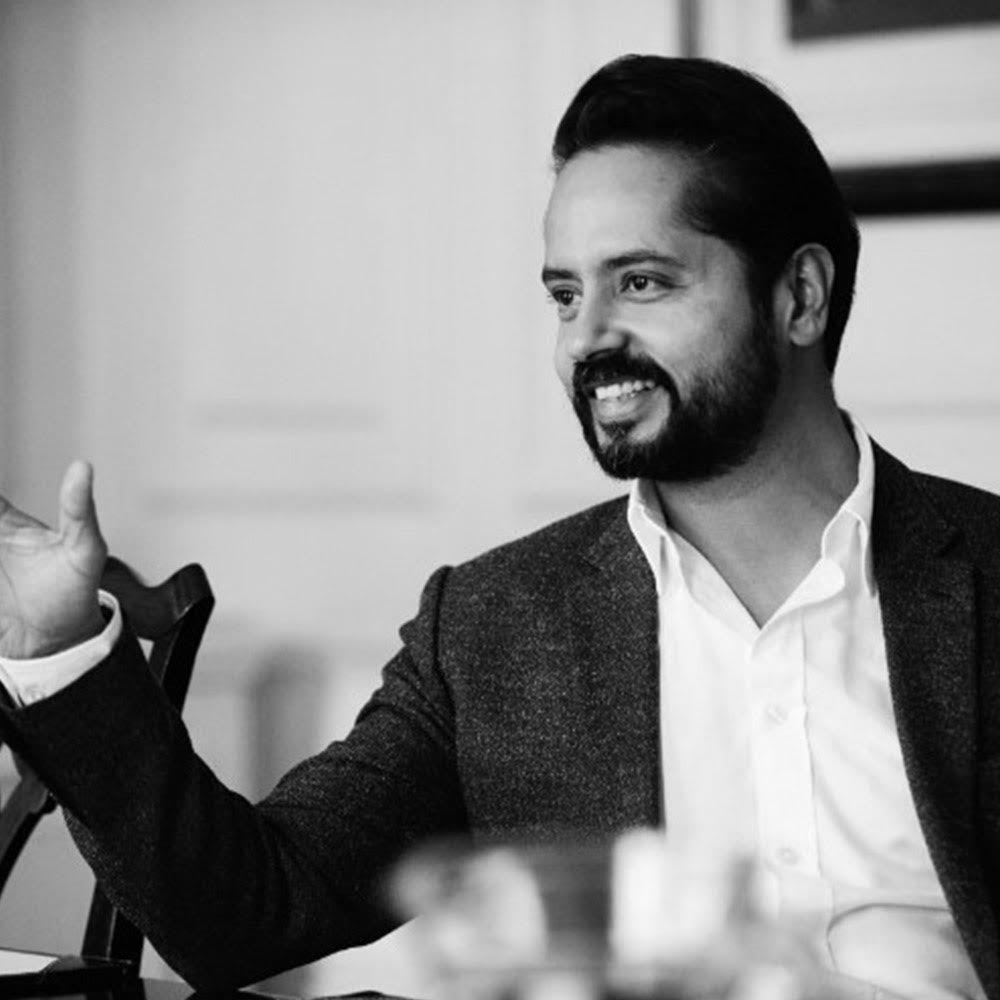
“Often the outward perception of an entrepreneur is one that is glorified, represented by glamour, excitement and the high life, but the reality is that it is hard work. To succeed you must have a passion and drive that runs through your veins, directed at an idea or philosophy that you truly believe in. Once you have that, you need to arm yourself with a good measure of resilience, conviction and courage. But you also need a touch of naivety that allows you at times to follow your heart over your head.”
“Often there is a mantra among entrepreneurs of “don’t give up” and I’ve found this to be a dangerous one. Adaptability in a start-up is crucial and being able to find the balance to pursue the idea you have, while accepting feedback and taking on board learnings, is key. It’s really more of an art than a science so the path to success is often more nuanced.”
“One of the joys of being a start-up is the ability to be agile, adaptable and quick off the mark when an opportunity arises. At HealthHero, as a digital health provider, we had an opportunity to accelerate the ambitious growth plans we had overnight when the Covid 19 pandemic hit.”
“That agility to react and execute with speed has enabled us to grow the business at a pace we had not predicted, taking along our investors, driving organic growth and making strategic acquisitions. It’s really enabled us to make a difference to how healthcare is delivered; making it better and more efficient and focusing on patient outcomes. If we are doing that well, we can also make an impact beyond our business too. And for me, doing well in business as well as having a wider positive impact in society is a real driving force and reinforces why I chose the path of an entrepreneur.”
Tom Simmonds, COO of Gretel

“I’ve never really considered myself to be entrepreneurial. Entrepreneurs always seemed to be these flying-by-the-seat-of-their pants visionary types, taking risks, often winning against incredible adversity. It looked like an adventure, but as a lifelong operations guy, it never really occurred to me that I was the adventurous type. Yet here I stand as a testament to the fact that if you have a cause and believe you can create the solution that will change lives, you will take a leap of faith and dare to try something different.”
“Yet, biting the bullet and choosing to leave the seemingly stable life of working for a plc to going it alone, is challenging at the best of times, but doing it and then finding yourself amidst a global pandemic and all the instability and turbulence that brings, is another thing altogether.”
“Having incorporated Gretel in 2019, when COVID hit in 2020, the great conversations we’d been having with financial companies to help reunite their customers with lost money, suddenly dried up as the industry battened down the hatches. It felt as if we were the fleet of fisherman out in calm waters on our first launch, that then very quickly found ourselves in the eye of a storm. We had a choice to keep rowing or capsize.”
“With the world in freefall, we shored up our defences, managed our costs and continued to develop our proposition. It was a challenging and uncertain time – not only for us but for everyone in the UK. Thankfully however, we have investors who support and believe in our proposition which has led to two successful rounds of fundraising in the last year.”
“Starting a business, particularly as an early founder, can be a lonely experience, but it can mean choosing to work with the people and a team that you really love. Gretel’s CEO, Duncan Stevens, is someone I have known for over 13 years. Having worked together at Equiniti we quickly established that we share a passion for disruptive technology (as well as rock music!). We also shared a vision to create something transformational that will ultimately help millions of consumers.”
“If there can be any silver linings for us from the pandemic, it is that there is a greater need for, and greater acceptance of, digital enablement, as the trust in tech and what it can deliver has accelerated. Gretel is there at the forefront to disrupt an industry that desperately needs transformation.”
“I had my carpe diem moment to take the plunge with Gretel, and I have no regrets. Yes, leaving a stable role for a start-up has risks, but so too does staying on the thread-mill and not making change.”
For any questions, comments or features, please contact us directly.



